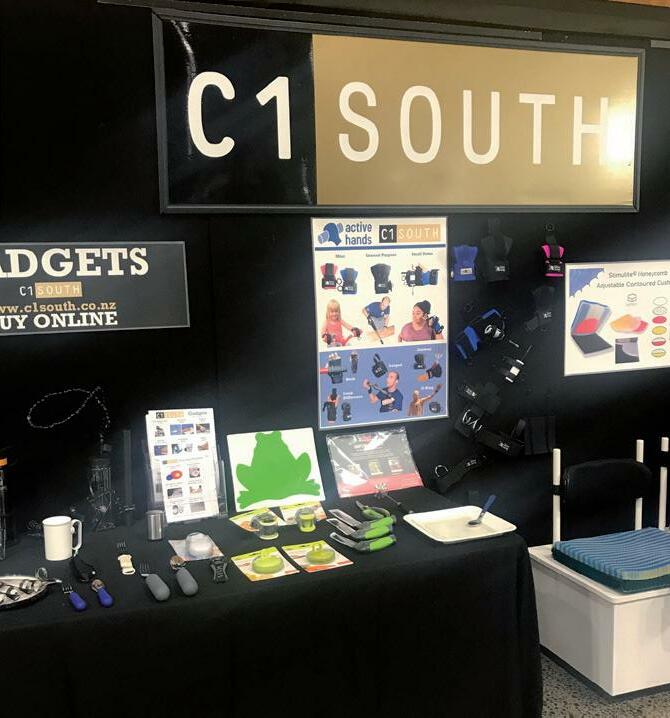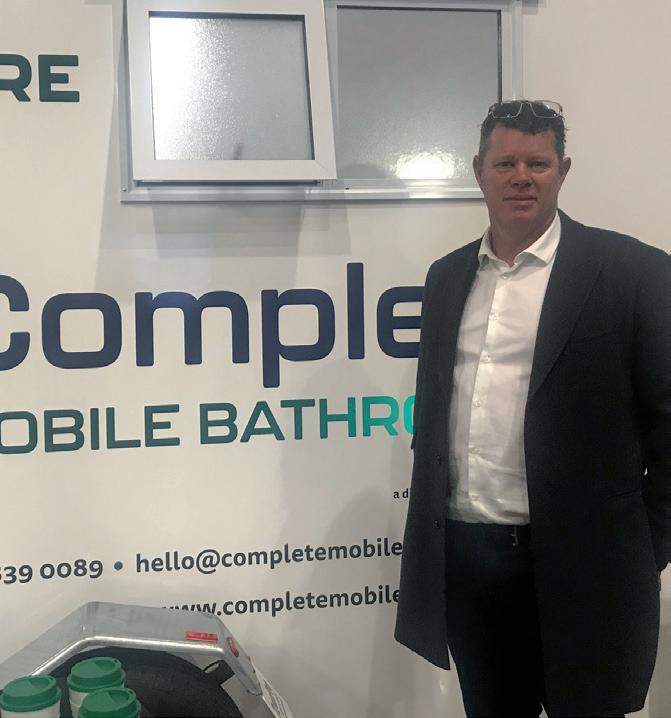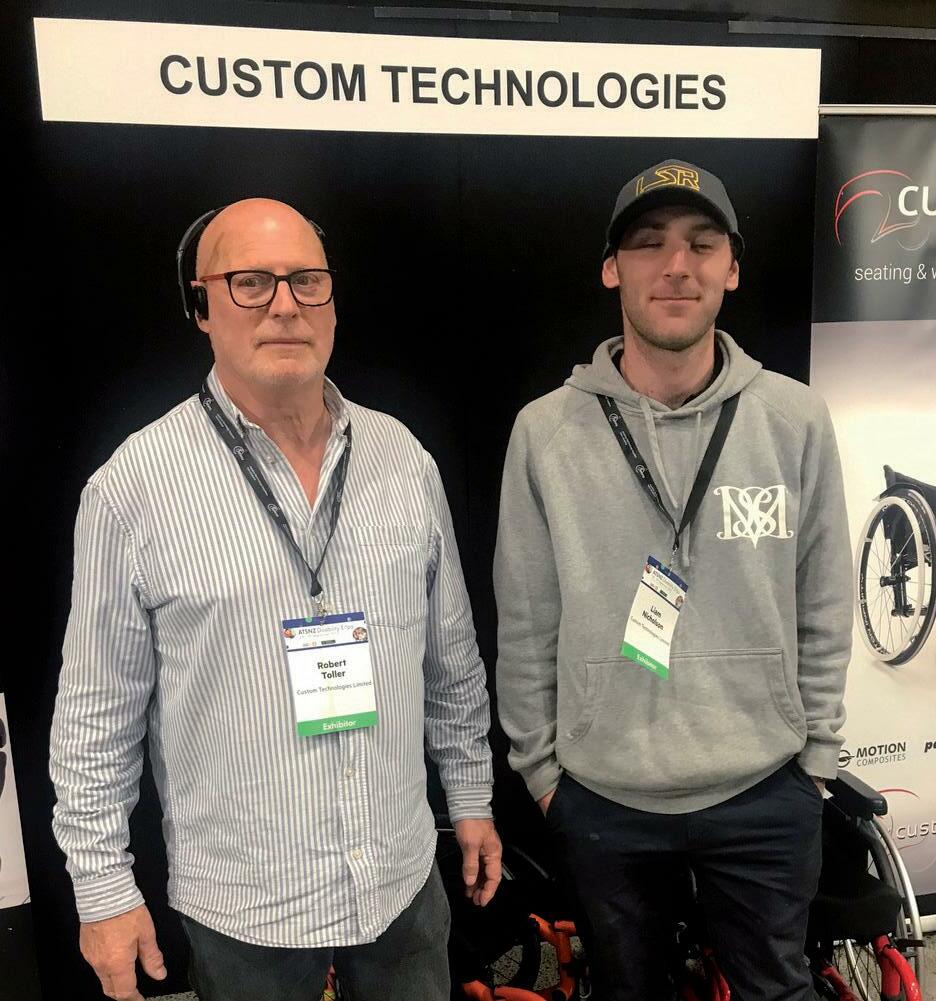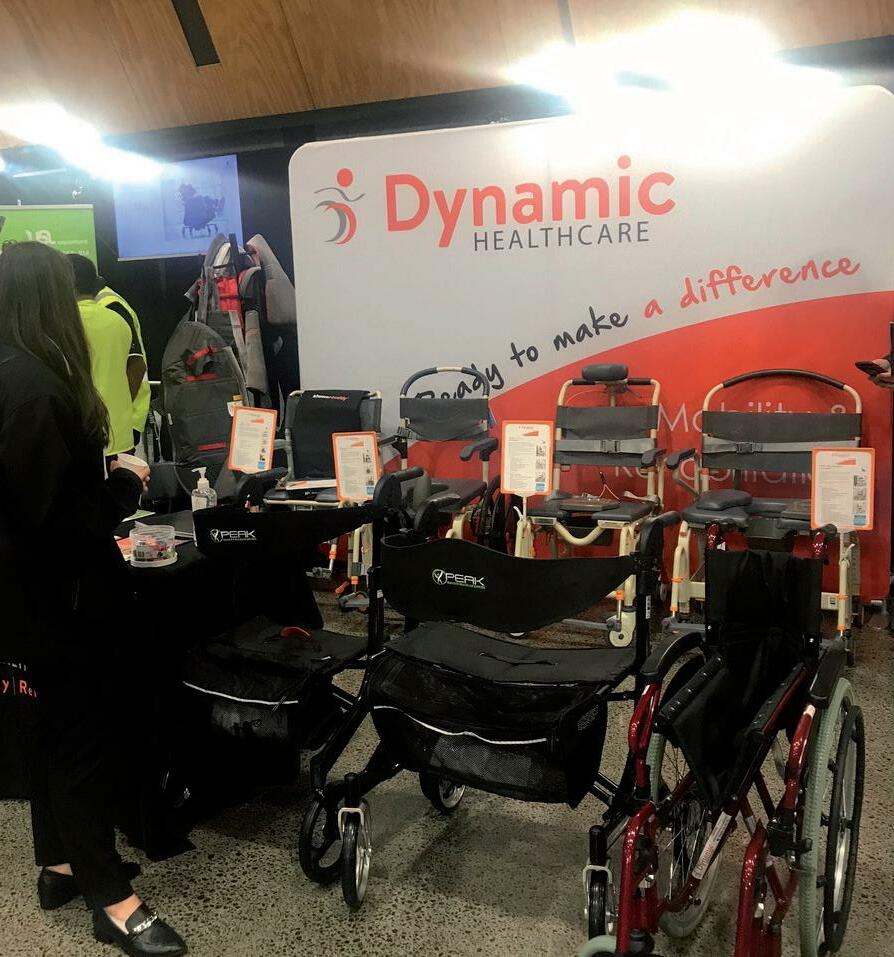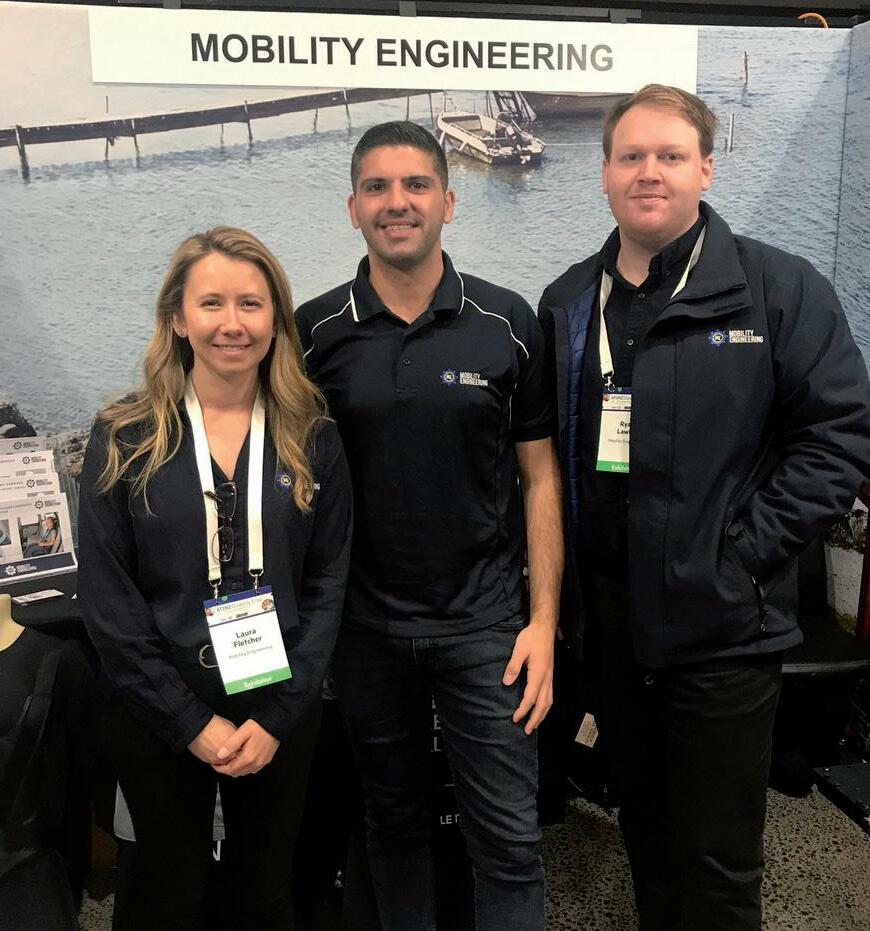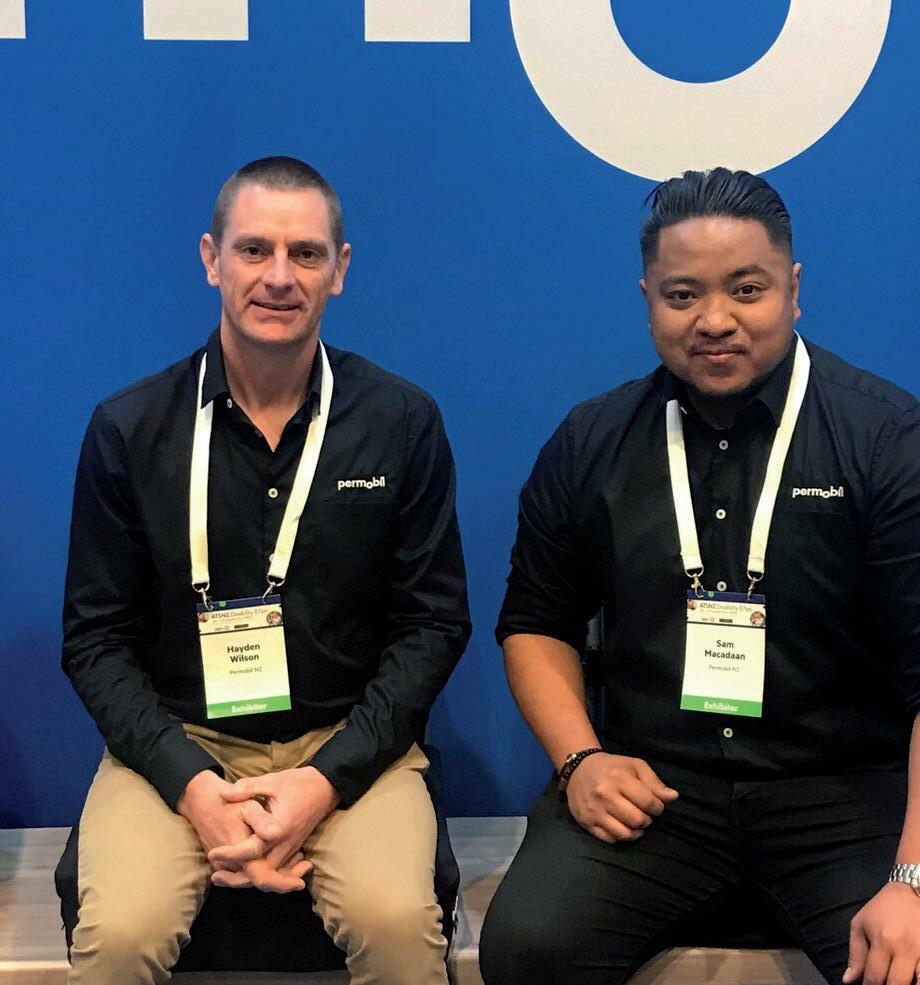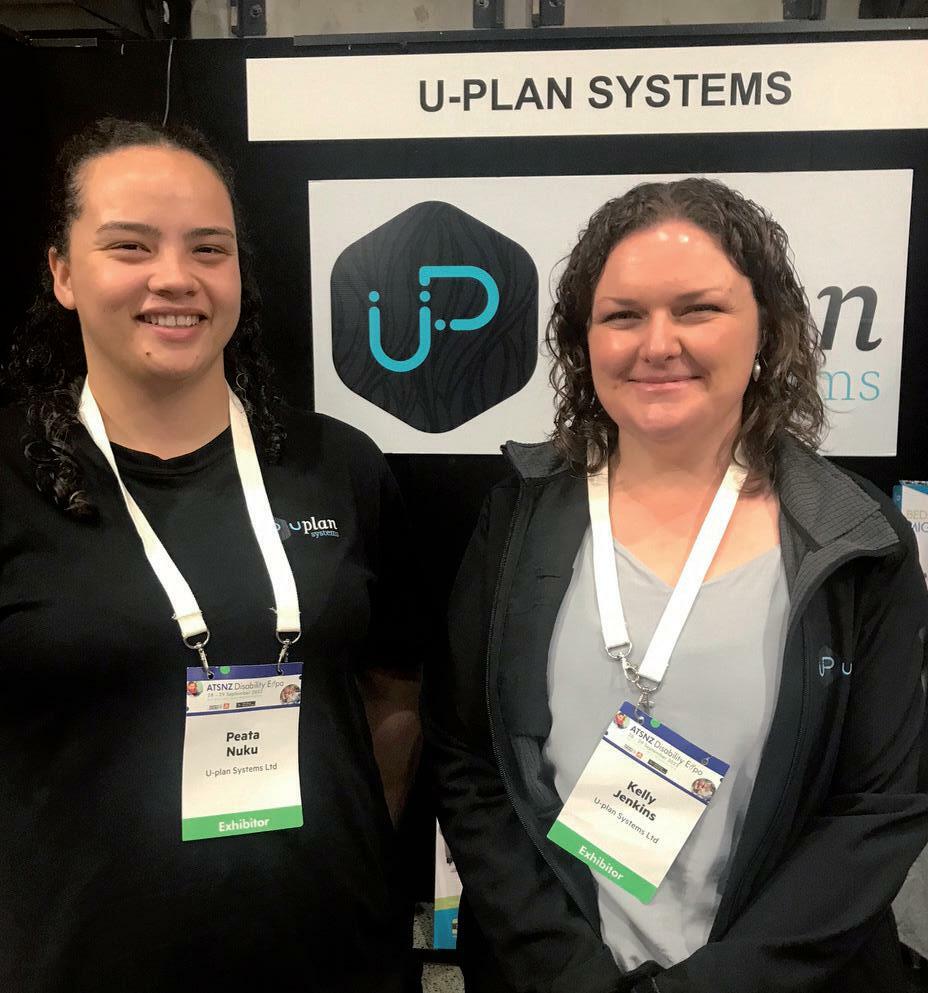Essence





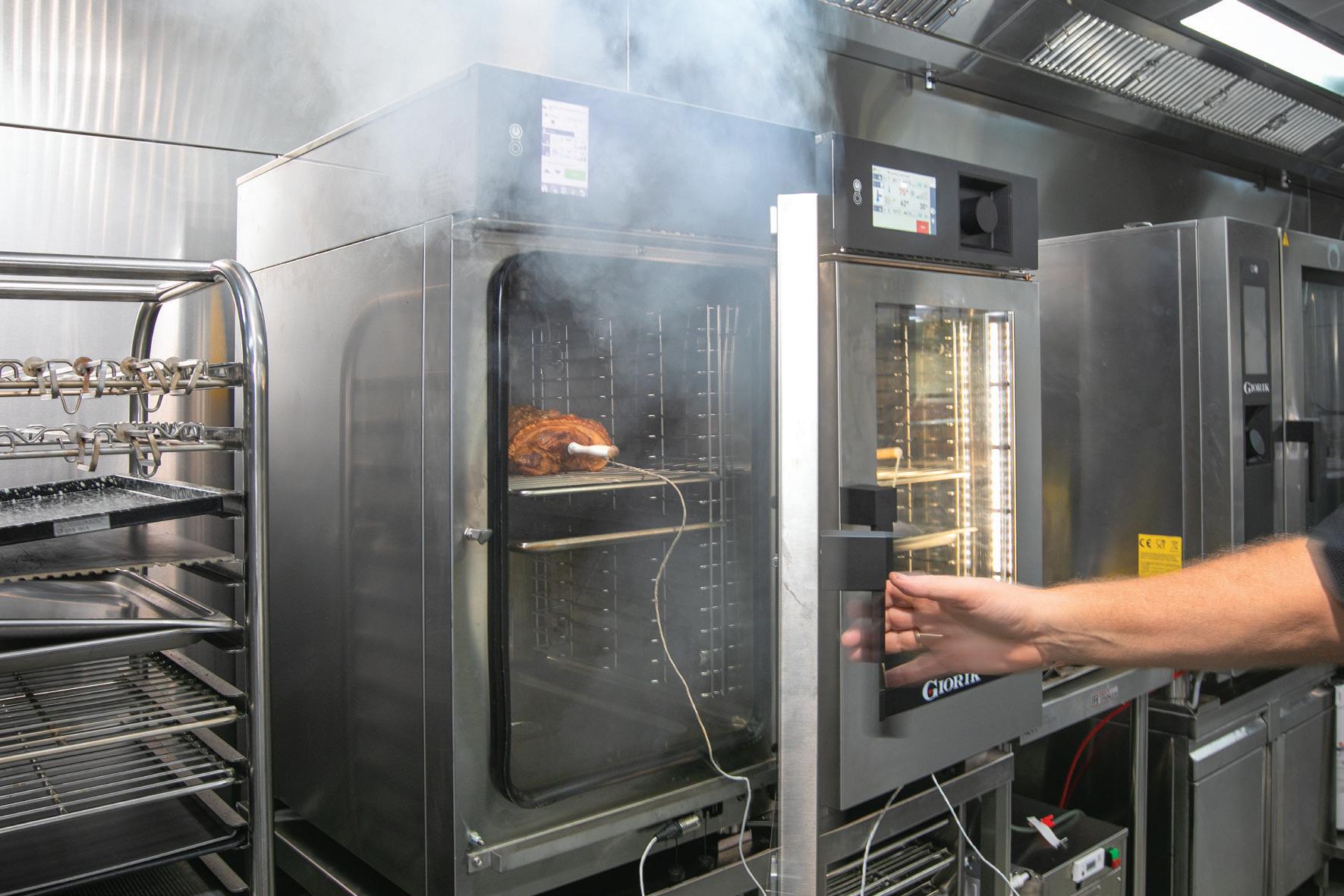

fire door closers make doors hard to open and people will often wedge them open for airflow - defeating their safety purpose. Free-Motion door closers allow the door to swing freely, so it can stand open on its own. If the fire alarm is triggered, the door closer activates to gently close the door.
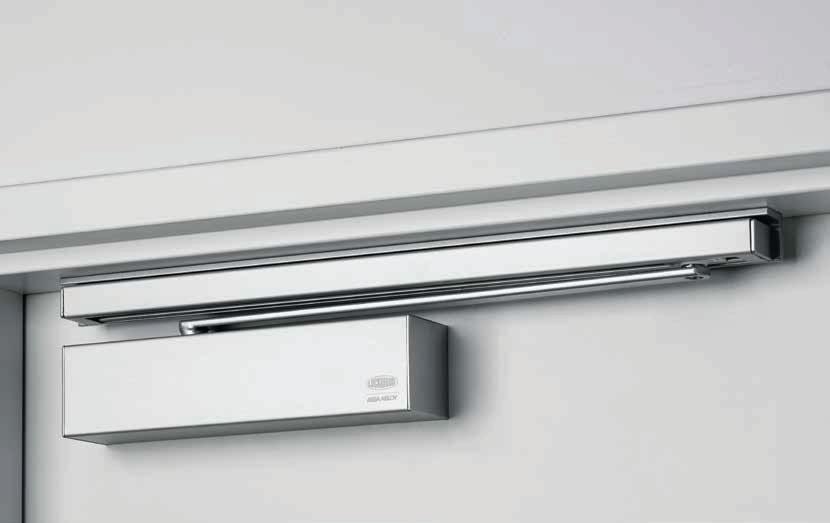
ime to stop forming committees to consider action and start pushing much harder for the government to realise that the aged care sector's lack of nursing staff is crippling services. The aged care sector's 1,200 nursing shortage means that the elderly are having to stay in hospital which in turn puts additional pressure on hospital services. With the staffing crisis affecting all areas in the health sector, it is not even an option for the elderly to have in-home care as the nursing shortage has hit hard there as well.
Aged Care Commissioner Carolyn Cooper has been quoted as saying that immigration settings and a lack of funding for education and training are contributing to the shortage. The process of bringing in offshore staff is laborious, as aged care facilities have to be accredited employers, and apply for visas for the incoming
nurses making sure that their qualifications are recognised here. This process is taking up to six months.
Instead of yet another bike lane can we please have some sensible decisions made around moving swiftly to get the health professionals into the country that we so desperately need? Focusing on core essentials is the mainstay of good business, if we can't get health and education right it really doesn't matter how many bike lanes we have.
 Tania Walters, tania@reviewmags.com
TANIA WALTERS Publisher
Tania Walters, tania@reviewmags.com
TANIA WALTERS Publisher
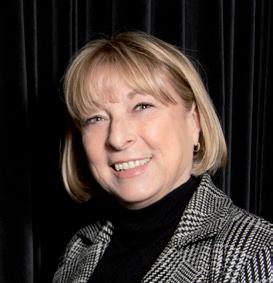
6 Health It – Time For “Patient Power” of our health sector to capture the benefits of digital technology.
Retirement villages sector launches most significant reform in a decade New Zealand’s retirement village sector has unveiled major changes to the way the industry operates in the most significant voluntary reforms to the industry since legislation was passed in 2003.
The aged care sector employs over 33,000 people in New Zealand, and with the growing population, it is expected that there will be an increase in demand of between 50 and 75 percent over the next 15 years.


In a world dominated by an ageing society, the demand for the provision of care that older people expect and deserve is rapidly outstripping current support staff numbers and ability.
Like strands of harakeke being woven together, our work-based training organisations, institutes of technology and polytechnics are joining together to become Te Pūkenga.
HUBSCRUB’S unique wash and disinfection system was on display at the recent RVA / NZACA Conference. HUBSCRUB was demonstrating the versatility and effectiveness of its equipment cleaning and infection control system, with demand for units steadily increasing over the past couple of years.
The retirement village industry has grown more competitive over the years. New generation retirement villages have redefined what residents expect from their villages. As villages have become more sophisticated, some have struggled to keep up with increasing operational challenges.
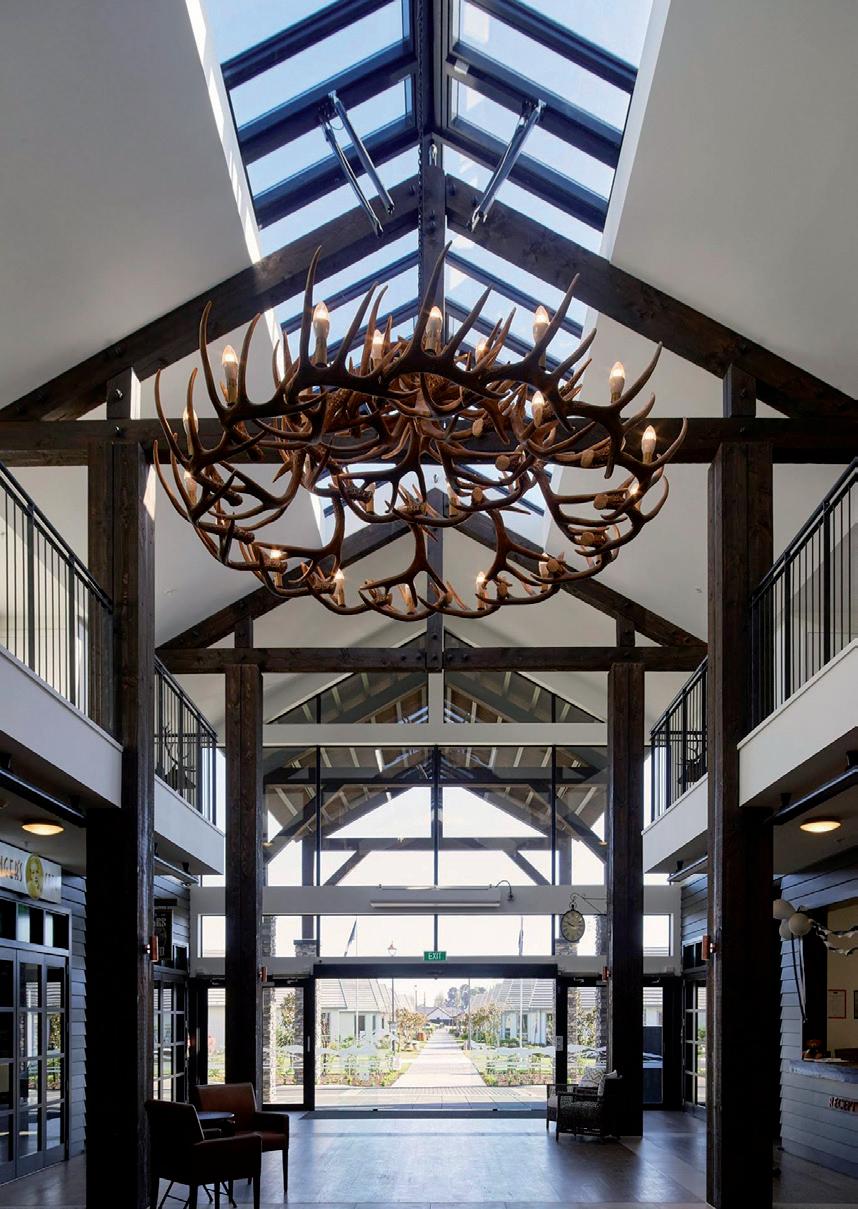

ooking is in 24-year-old Shahil Lala’s DNA. The chef recently found out that his maternal great grandfather was a chef and paternal grandad was a wedding caterer.


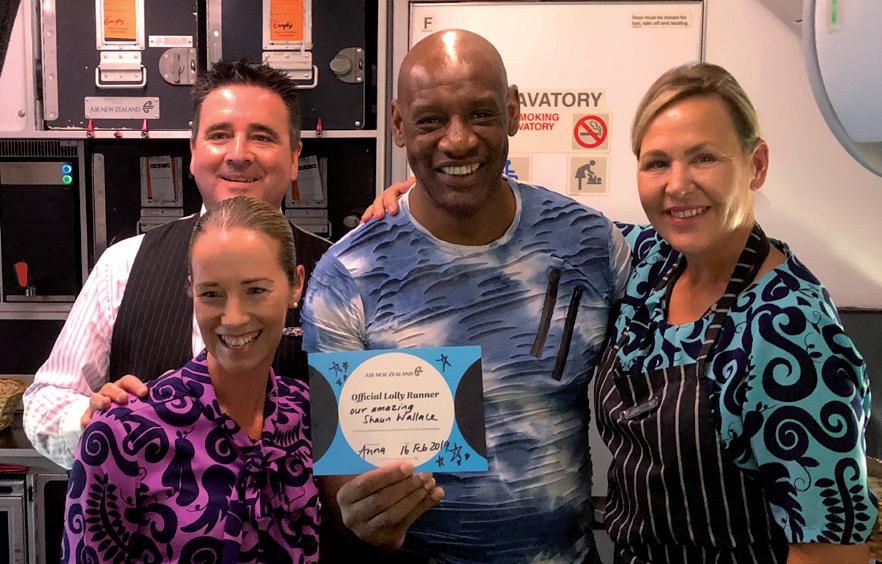
It’s 9pm on a Tuesday evening, and Shaun Wallace, the Dark Destroyer from The Chase, and arguably New Zealand’s favourite Chaser, is on the phone from London.

Wools of New Zealand is building on its success in flooring Kiwi homes in woollen carpets with the development of a new wool tile range for the commercial sector.
Showcasing products and services designed for the rehabilitation, aged care, home care markets and leisure and recreation markets, the 2022 ATSNZ Disability Expo took place from 28-29 September.
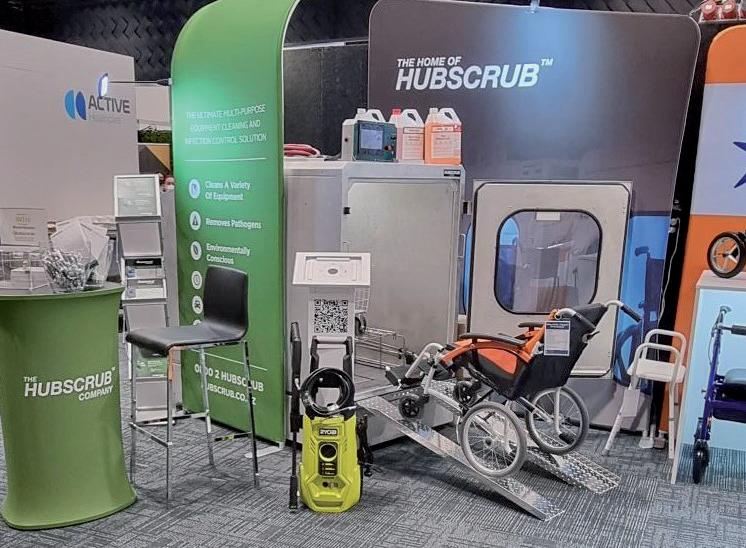
Our ageing population, more than any other group, is suffering from the failure of our health sector to capture the benefits of digital technology.
ERNIE NEWMAN Convenor of the TUANZ Digital Health Consumer Advocacy Group
T underpins every facet of modern society. No sector can be more efficient than its underlying IT infrastructure. Most sectors have got it right.
Health? Not so. Misdirected and inadequate investment, absence of a whole-of-system approach, eternal band-aiding, and weak political leadership for a decade or more have left an antiquated, fragmented IT infrastructure unfit for purpose. Bringing the entire health system down with it.
Meanwhile, medical advances have delivered enormous new opportunities to give people longer, healthier lives. However, with those opportunities come costly community expectations. If IT in health had kept pace with that in banking, education, travel, government services and the like, it would be key to delivering efficiencies that offset some of that cost.
Much more efficient use of clinical resources, especially greater patient self-management enabled by information, could be expected. Older generations would benefit.

Health IT has failed to deliver. True leadership has been missing at crucial moments. In 2009 the government of the day promised ubiquitous “patient portals” with our complete health history centralised and accessible to every New Zealander by 2014.
It failed to materialise. Sure, some of us have a partial portal – I can get my test results online but only at the GP level, and I used to be able to make an appointment online until this service was withdrawn “due to Covid”.
But I can’t get my hospital discharges or my GP’s clinical notes. Even my changed address details don’t move around across the system. The kind of information “one-stop shop” we have taken for granted from banks, airlines and government agencies for decades remains elusive in health. There seems to be no plan to achieve it.
“Telehealth” – the quaint term health uses for consultations by Zoom – is progressing, but its painfully slow compared to the way we use video routinely in our daily lives. Think about kids’ education, or working from home. Imagine the benefits to retirement village residents if every village had a kiosk where they could make a video call with their GP, specialist or hospital. Why should that not be just as routine as a traditional in-person consultation or phone call?
Other examples of lost opportunities and inefficiencies abound. RNZ recently revealed that radiologists in Central Region are warning that “dysfunctional IT systems are losing information, failing to link vital reports together or logjammed, and some staff are so jaded that they are now resisting upgrades - because these have never
worked before”. This occurs “frequently around the region” and is “life-threatening.”
Seriously! In a supposedly first-world country’s health system in 2022 – two decades into the information age.
When industry structure fails to meet the community’s needs, it’s time for the government to step in. Then if the government fails, it’s time for the ultimate customers – the public – to stamp our feet. That’s the point our health system has reached concerning the use of IT.

That’s why the Tech Users Association – TUANZ – has stepped in by launching a new Digital Health Consumer Advocacy Group. It’s completely independent of the government, guided by a dozen interested individuals within the broad TUANZ
constituency. They’re customers on the demand side of the health system – not clinicians, IT specialists or other vested interests on the supply side.
This Group will work actively with the sector, having already forged links with several key influencers and groups. When officials, Ministers or clinicians pour cold water, we will challenge them. We will increase public awareness of the lost opportunities and the solutions. We will be collaborative but outspoken. Customers have a valid perspective to contribute.
Our health IT system cannot be allowed to go round and round in unproductive circles for a moment longer. Consumer power must be introduced to the mix, and we look forward to constructive engagement.

dysfunctional IT systems are losing
failing to link vital reports together or logjammed, and some staff are so jaded that they are now resisting upgrades - because these have never worked before.
Retirement villages sector launches most significant reform in a decade New Zealand’s retirement village sector has unveiled major changes to the way the industry operates in the most significant voluntary reforms to the industry since legislation was passed in 2003.
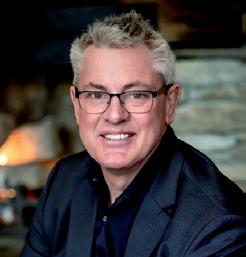
 GRAHAM WILKINSON President RVA
GRAHAM WILKINSON President RVA
mong the key changes is a requirement that operators pay interest on outstanding capital sums if a former resident has not been repaid within nine months of leaving a unit. In addition, all operators are being asked to stop charging weekly fees once a unit is terminated and vacated. Members of the Retirement Villages Association (RVA), which represents operators comprising over 95 per cent of all units including not-for-profits, independents and listed village operators, have approved the changes, which will be trialled for 12 months as part of the organisation’s best practice guidelines.
The reforms will be voted on at the RVA’s AGM next year, and if passed, will become part of the Association’s best practice requirements that members’ performance will be audited against. The RVA has also committed to asking members to
amend Occupation Rights Agreements (the contract between an operator and resident) to eliminate any perceived unfair clauses. These include clearly setting out responsibilities for repairs and maintenance of operator-owned chattels.
The sector’s best practice disclosure guidelines regarding residents’ transfer to care will also be recommended to be incorporated into the Retirement Villages’ Code of Practice.
Furthermore, if a resident is moving from a village without the necessary level of care and needs funds to pay for residential care costs in another facility, village operators will take all reasonable steps to assist them to get a residential care loan from the Ministry of Social Development.
If a loan is not possible, the operator will advance sufficient funds to cover the residential care costs with the advance secured against the net proceeds when they are paid out to the former resident. “Retirement village living is one of the
country’s most popular housing options with more than 100 New Zealanders moving into a retirement village every week and independent research shows overwhelming satisfaction rates,” said Graham Wilkinson, President of the Retirement Villages Association.
“However, we have always accepted the need for improvements to the sector’s consumer protections regime where they are feasible and make sense. “Developing and enforcing industry best practice is a more effective and fairer way to resolve these issues rather than legislative upheaval for the sake of it.
Our industry’s Blueprint is clearly delivering positive outcomes for residents across New Zealand.” The sector accepts it is only fair that village operators share some of the pain where a relicensing of a unit takes over nine months, although research shows this was less than 10 per cent of all relicensing in 2021, he said.
“That’s why we are trialling having members pay interest on any repayment over nine months. This has the benefit of not penalising efficient operators, which a mandatory deadline would do, while encouraging others to up their game.” Stopping weekly fees when residents leave units has already been adopted by the six largest corporate operators and larger independents and dozens more operators will now follow, said Wilkinson.
“The operators that do charge fees after a resident leaves are generally smaller or regional operators that simply cannot afford to cease this practice. Operators who are not responsible for the sale of the residential unit or independent owned villages with fewer than 50 residential units will also be exempt from the changes if the business risks failing.” Other changes include clarification on the maintenance of chattels and upgrades of units to meet the Government’s Healthy Homes standards.
“All of these changes are a continuation of the steps we have already taken to improve our policies and practices such as appointing former MP Hon Jo Goodhew to the RVA’s Executive Committee as an independent member to bring older peoples’ views to the table. “We’re prepared to explore other changes, but want to see a more evidenced-based approach before making decisions.
“For example, an industry ombudsman may be a good idea, but our initial trialling of a de-facto dispute resolution service suggests the need is extremely low, if at all. “Standardised contracts may be helpful, but what’s more important is clarity, communication and the ability for village operators to offer differentiation and innovation, not the lowest common denominator.
“There’s a very real risk that innovation will be stifled if contracts are essentially a template,” said Wilkinson. The RVA is concerned about the negative unintended consequences of imposing changes to the sector’s commercial
model, noted Wilkinson. “Villages are extremely long-term investments and operators need certainty before they can invest. Developing and fully licensing a village requires substantial capital and takes typically around 5-8 years, and many further years before any cashflow return is received.
“If there is any possibility of allowing an adjustment of commercial terms in the future, operators will think twice about future investment.” He also said that the sector is confident residents’ needs were generally catered for when they moved into care. “Eighty-seven percent of residents moved seamlessly from the village to care. Of the 13 percent who moved to another facility in 2021, four per cent was because there wasn’t the right level of care available in their home village, two per cent needed to make a temporary move because a bed wasn’t immediately available, and seven per cent moved away for personal reasons.
“This shows that very few residents in villages have trouble moving to care where it is in a village.” An independent survey shows the overall average time village operators took to repay former residents or their estates their net capital minus a deferred management fee is just four months.
Seventy-seven percent of units relicensed last year were within six months and a further 14 percent within a further three months. Just nine percent, or 283 units, took nine months or more. “Clearly, it is in the interests of all operators to relicense units as quickly as possible. No operator wants a long drawn-out process,” said Wilkinson.
That’s why we are trialling having members pay interest on any repayment over nine months. This has the benefit of not penalising efficient operators, which a mandatory deadline would do, while encouraging others to up their game.
Linda Stainton is in aged care because she is passionate about caring for people - she has been a nurse for a long time. An injury prevented Stainton from returning to acute care, hence a move into aged care, where she “absolutely loved it!” Working across acute care, as a school nurse and for multiple nursing agencies has meant a varied depth of knowledge. Working on the floor as a Clinical Care Manager and a Quality Care Manager all shaped her ability to manage support as a Homage Care Specialist. “The people we care for don’t want to sit around being serious all the time, so it is lovely to uncover the care recipients’ sense of humour and have a laugh together. We are sharing the last part of their lives, so get in there, get to know them, and share the joy there.” Read more here.
The body representing retirement villages has unveiled voluntary reforms amid calls from consumer and resident groups for a review of the 20-year-old legislation governing the sector. The Retirement Villages Association (RVA), which represents 95 percent of all units in New Zealand, will now require operators to pay interest on the money owed to a former resident if their unit was not resold within nine months. Other key changes include asking operators to stop charging weekly fees once a unit contract is terminated or the resident leaves, providing better support to residents wanting to move into another facility, removing “unfair” clauses from occupation rights agreements and clarifying how chattels were expected to be maintained. The measures would be trialled for 12 months as part of the RVA’s best practice guidelines before being voted on at the organisation’s general meeting next year. Read more here.


With changes to mask mandates, a new free recycling initiative designed to prevent PPE from entering the waste stream and marine environment has been launched to help address barriers to the recycling of used facemasks. The initiative is believed to be the first manufacture-to-end-oflife recycling programme for masks in New Zealand.

Most disposable facemasks used in New Zealand are made from polypropylene, a form of plastic known as #5 in the recycling scheme. Despite increasing demand
from NZ manufacturers, recycled polypropylene is still being sent offshore or to local landfills.
Under the initiative, households and businesses can request a free postagepaid courier bag to be
delivered to them, which they can then fill with used facemasks of any brand or material. Read more here.
Reconfiguring menus with new entrees, mains and desserts is a foodie challenge laid down for Ryman’s gourmet experts who are reconfiguring their menus to excite and satisfy a wide range of residents. The construction of recipes is becoming more rigorous and the menus more sophisticated. Seasonal Ryman Delicious menus – reflecting winter, spring, summer, and autumn – are being drawn up with the help of the ‘menu design panel’. This dedicated panel is led by Matt Orr (Food Systems and Development Chef) and includes regional lead chefs, village chefs and resident tasting teams. As part of the recipe and menu design process, ‘resident focus groups’ taste and test new meal choices. Read more here.

Summerset Group has strengthened its portfolio with the purchase of two new properties in New Zealand. The acquisitions are in Masterton (Wairarapa) and Rotorua Bay (Bay of Plenty). The announcement comes as the company released its half-year result showing an underlying profit of $82.5 million, up 9.2 percent on the same period last year. Summerset Chief Executive Scott Scoullar said it is pleasing to be able to strengthen our portfolio and secure these key sites in high demand locations. Read more here.
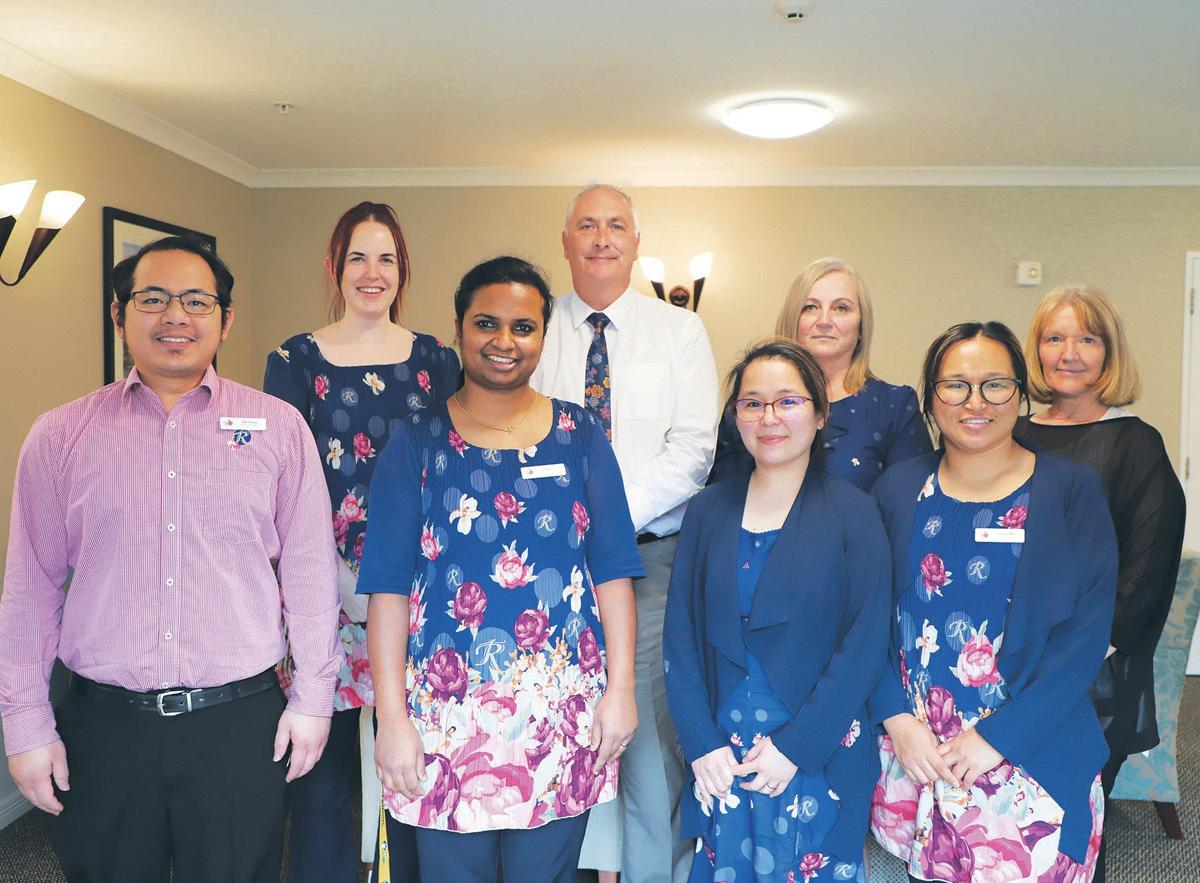

The one thing that the management team at Ryman Healthcare’s Hilda Ross Retirement Village have in common is a passion for delivering the best in aged care. Two of the team, Assistant Manager Sue Wickham, and Facilities Manager Vicki Webb, have notched up nearly 20 years each and still get a buzz from seeing their residents happy. “It’s important to remember that our residents were like you or me, and now they’re here to live the rest of their lives to the best of their ability, and our role is to facilitate that.” Read more here.
Leading aged care and veteran services organisation, RSL LifeCare has welcomed a new CEO, appointing experienced and entrepreneurial business leader Janet Muir. Muir joins RSL LifeCare having spent her career to date in senior roles across human services and healthcare sectors. “This is an incredibly important time to continue to deliver a high level of care for our seniors and veterans and I’m delighted that Janet has accepted the opportunity to be part of the RSL LifeCare team.” Read more here.

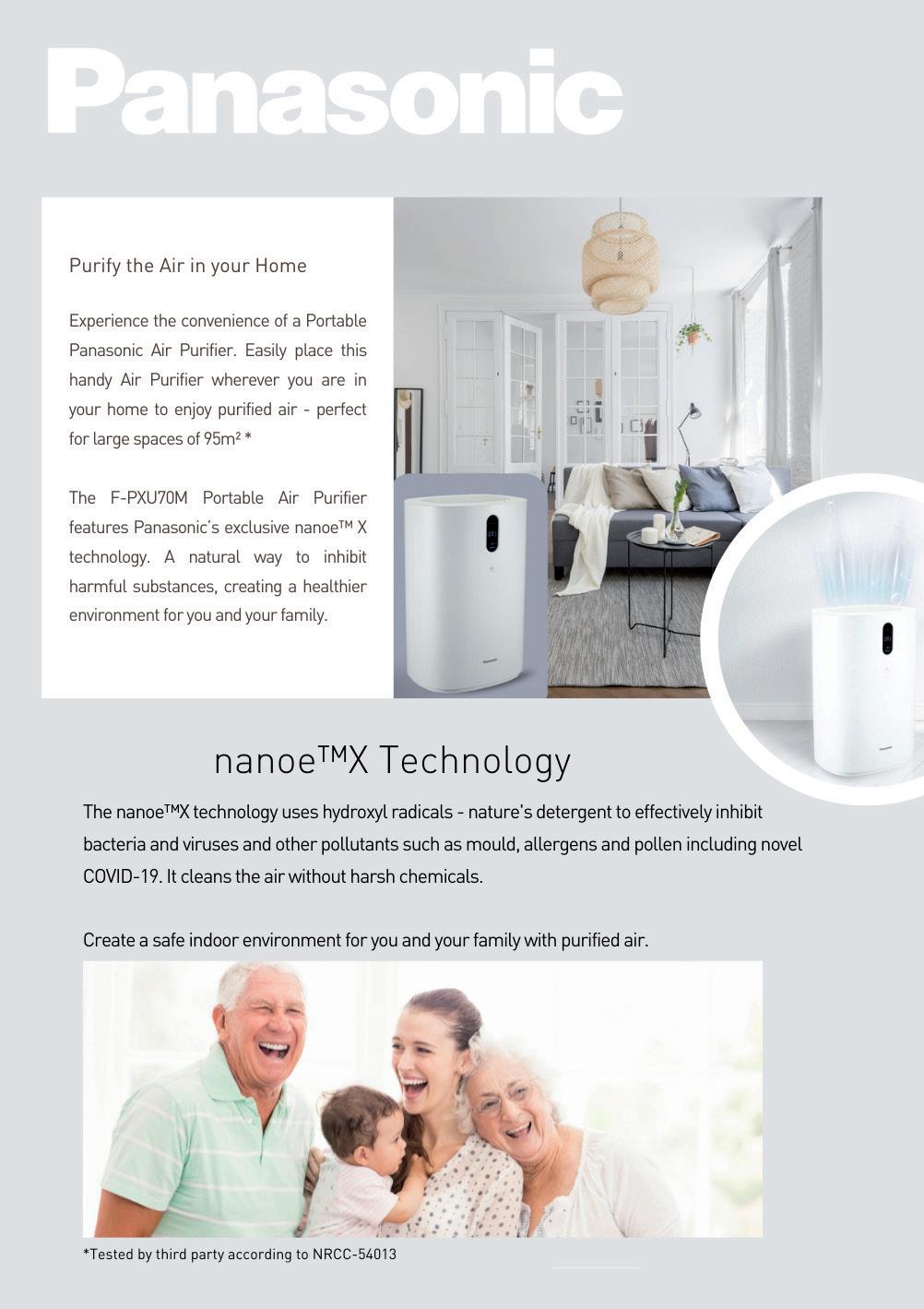

The aged care sector employs over 33,000 people in New Zealand, and with the growing population, it is expected that there will be an increase in demand of between 50 and 75 percent over the next 15 years.

elping your employees to understand their worth and recognise their own abilities in the workplace can go a long way to increasing not only motivation, but job satisfaction. Being proactive about building the skills of your workforce is a simple yet effective way of taking a holistic approach to enhancing your aged care business.
Linkedin Learning’s 2019 Workplace Learning Report found that 94 percent of employees would stay with a company longer if it invested in their learning and development. An employee who feels supported and fulfilled at work is one who stays. Professional development can be an excellent way to show your staff that you value them, while saving you time and money on recruitment.
With the confidence and capabilities gained through additional training, you can expect your workforce to be more efficient and productive. When your team is highly trained, they also have the latest and greatest knowledge to benefit the way they approach their roles.
Aged care professionals who are provided with high quality training are more confident and better able to provide the highest possible standard of care.
Keeping industry know-how up to date is vital and regular professional development means your staff will have the latest information and tools to do their job to the highest standard. Confidence at work enables employees to do a better job with more enjoyment and less stress. In turn, this makes getting up for work every day much easier for everyone on your team. Professional development training builds staff confidence and sparks passion.
Talk to your employees, listen to what they want and need, survey teams anonymously and ask for feedback and insights to guide your approach to professional development. The training should help your team to be better and do better, and they can help you identify gaps in their own skillsets that need to be filled.
Creating a culture of continuous learning will help you provide the best care for the Kiwis who need it most.
In a world dominated by an ageing society, the demand for the provision of care that older people expect and deserve is rapidly outstripping current support staff numbers and ability. Kalandra’s purpose is to meet that demand and, by extending Health Care Assistant knowledge and skills, to optimise the standard of care received by aged people in New Zealand and internationally.
Kalandra Education Group is a unique training provider, focussing on ways to improve the life of the older person.
Kalandra empowers the carers, extending their knowledge and skills and improving the quality and range of care offered. Established in 2016, Kalandra is registered and accredited
by The New Zealand Qualification Authority and is a Category 2 provider.

It is built on a value system that holds caring, respect and knowledge at its core.
As a training organisation it provides leadership in health care support by:
• Collaborating with Stakeholders – Aged Care Providers, Health Care Agencies, Sector
Organisations and Peak Bodies, Students and Alumni.
• Identifying Training Needs – present and future.
• Programme Development - Actively developing and sharing innovative, high quality training programmes.
• Demonstrating Best Practice across the sector. Programme content is aligned to the latest international standards and is designed to improve the quality, range and delivery of care offered to the older person. All our Health Care Assistant training programmes are NZQA approved.
Kalandra employs a
team of professionals with backgrounds in health and business with cumulatively more than 60 years’ experience in tertiary education. Students graduate with the knowledge and ability to contribute and provide the highest standard of care for their clients.
As a training organisation Kalandra is committed to setting the global standard in care. Its vision is to improve the life of vulnerable people, while transforming care through developing and sharing innovative education.
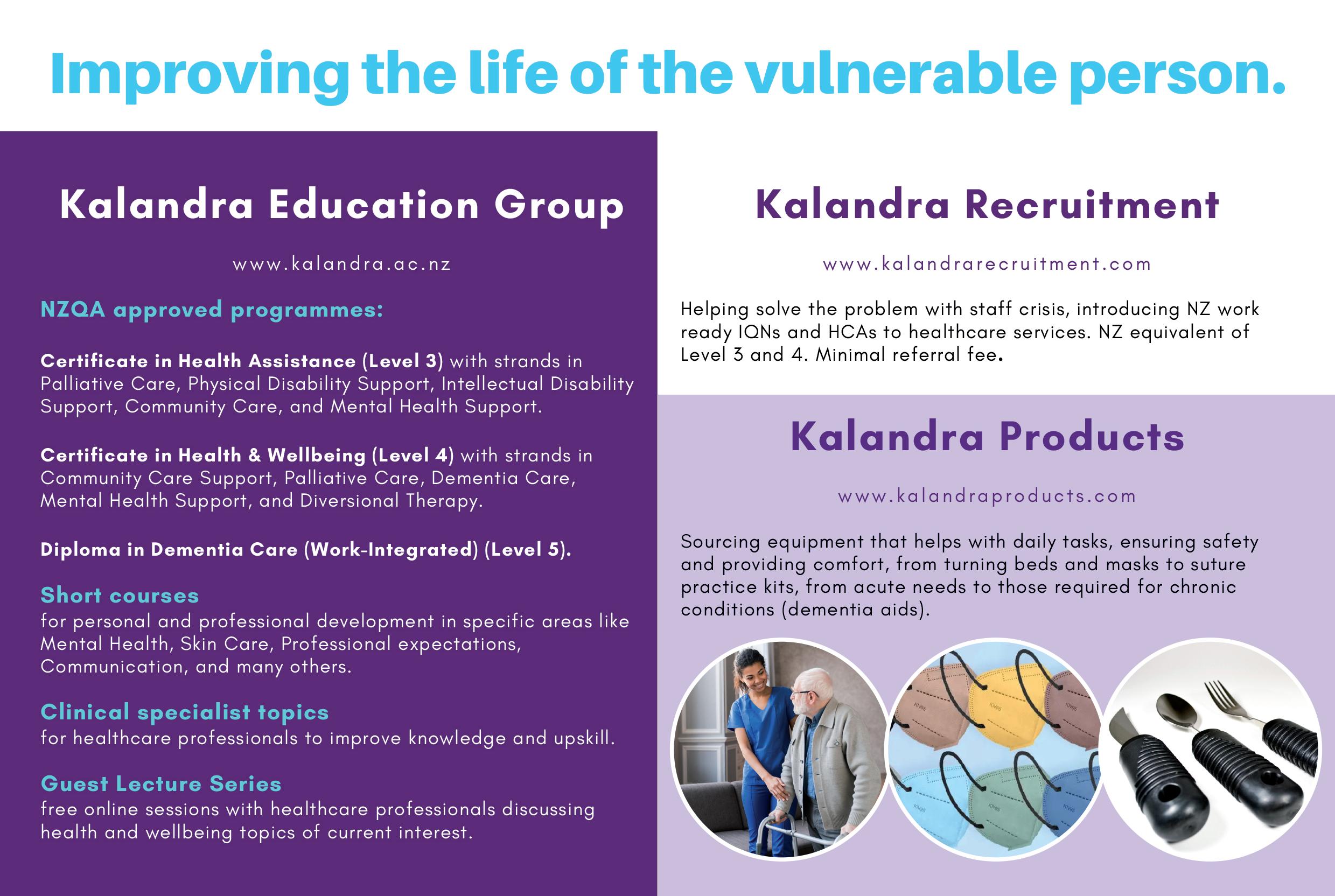
Like strands of harakeke being woven together, our work-based training organisations, institutes of technology and polytechnics are joining together to become Te Pūkenga.
TE PŪKENGA will be Aotearoa New Zealand’s largest tertiary education provider. It will create better ways of learning for industry, focused on where our workforce needs to be, now and in the future. As one, national network, Te Pūkenga will provide flexible, careerfocused learning that fits around the learner’s life – onthe-job, on campus and online vocational training.
Working for everyone Te Pūkenga will be the cornerstone of a cohesive, sustainable vocational education system that helps improve wellbeing for all New Zealanders, and supports a growing economy that works

for everyone. It will help New Zealand move to a vocational education system that puts learners in the centre.
Te Pūkenga will work closely with industry and business to understand their needs.
Directly aligning the training provided with the needs of employers and their staff. It’s about helping our communities and workplaces grow and thrive together, and providing businesses with knowledge and skills that are relevant to their changing industries.
Te Pūkenga is supporting a modern, future-fit workforce




for Aotearoa. Learners are encouraged to stay connected with their whanau, culture and communities as they work and learn.
The same, only better Local campuses, courses, support and training teams will remain in place, but are now part of Te Pūkenga. This will create access to a wide diversity of subjects and locations, and flexible ways of learning –on-the-job, on campus and online. Helping our people, our communities and our workforces grow and thrive together. Te Pūkenga. Learn with purpose. Find out more at tepukenga.ac.nz


Scan to view the Modular Stainless products online
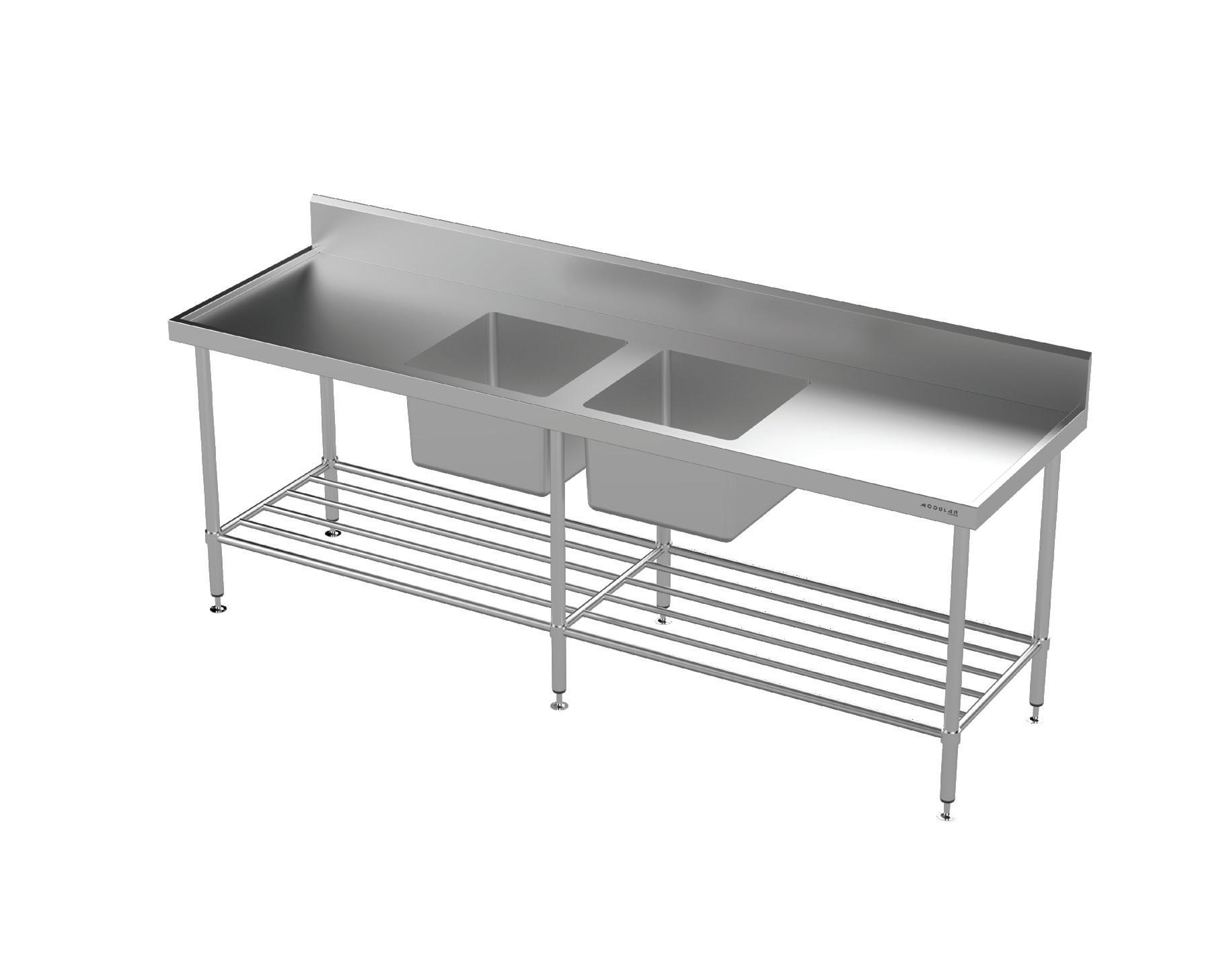
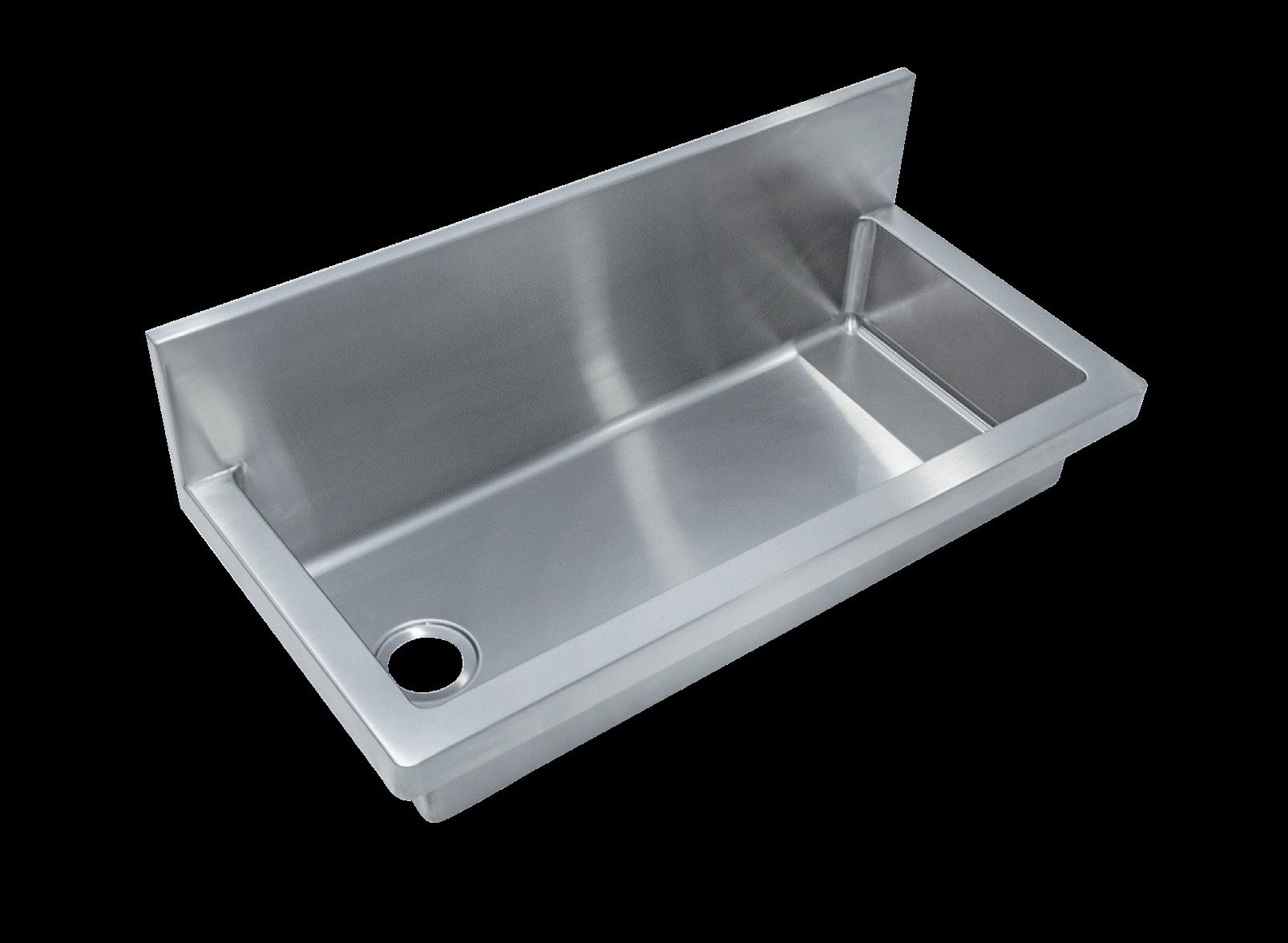




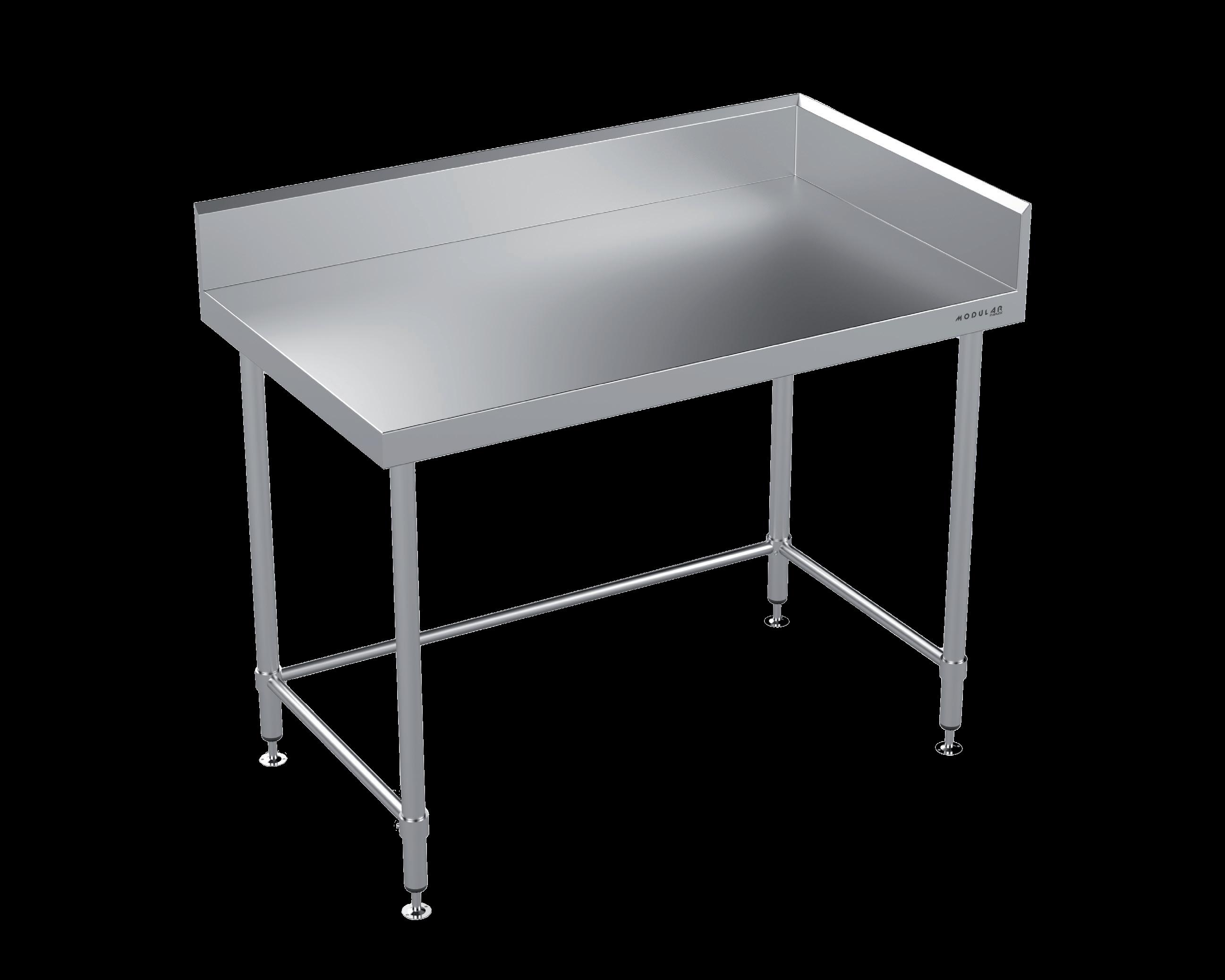
The Modular Stainless collection is fully modular and can be customised to suit any individual needs. It includes a comprehensive range of modular benches, sinks, tables, shelves, inlet/outlet benches, glass racks and trolleys.

Modular Stainless is attractive, cost e ective, hygienic, safe and easy to maintain and is ideal for installation in commercial kitchens as well as work areas in the hospitality, hotel and aged care sectors.

Is your aged care facility looking to drive sustainability into your organisation?
Have you considered what your uniforms are made of and what to do with them at the end of garment life?
Deane Apparel delivers over 2.5 million garments every year. Today, each is made in ethical workplaces, and an increasing majority of them are from fabrics with a reduced environmental footprint.
We first offered customers sustainable fabric in 2018. We’ve made ground since then; natural or recycled fibres make up 50% of our fabrics, and we now offer 13 eco-fabrics for wearer trials and volume production, plus a range of sustainable trims.
Not only that, our R&D and supply chain teams are finding ways to keep Deane clothing from landfill by collectively working towards a big goal: 95% of Deane garments diverted from landfill by 2028.
This is an exciting space with technology emerging to meet people’s demand for a circular economy. Currently, there is no single answer to dealing with textile waste, which is why we’re taking the approach that multiple solutions and organisations are needed to address garment waste.
Deane Apparel can offer a uniform range designed for comfort, breathability and function. Styles and fabrics are designed to flatter and enhance a range of body shapes. Aged care facilities can combine prints and colours to create a cohesive, consistent and welcoming look across clinical and non-clinical roles.


One size does not fit all. We have a generous size range; for some styles, we have in stock a female size 6 -30 and a male XS – 6XL. Our designers can customise our wide on-the-shelf range.
Using our in-house embroidery, badging and alterations factory attached to our warehouse, we will guide you through the choices available so the
team can wear your brand with pride.
From the first brief to the delivery of your individualised uniform, you have our unwavering focus. 90 years of uniform creation and delivery expertise is shared with every Deane customer.
We craft individual, unique, stylish interpretations of our customer’s brands, collaborating with external designers and our in-house design team. We work closely with you to design customisations of our extensive garment range to ensure your solution is as individual as your brand.
Our online tools make buying and managing your uniforms and workwear easy and transparent. With 24/7 access and mobile capability, you can order and manage from anywhere, any time.
Plus, we provide access to valuable management reporting anytime, anywhere, on desktop or mobile, so that you can manage your spending and stay within budget.
We offer an effortless apparel partnership, including online management that keeps track of your staff’s garments over all their different roles and sites – freeing you to do what you do best, and leaving uniforms to us, the experts in work apparel.

Deane can offer a uniform range designed for comfort, breathability and function. Aged care facilities can combine prints and colours to create a cohesive, consistent and welcoming look across clinical and non-clinical roles.
Deane can offer a uniform range designed for comfort, breathability and function. Aged care facilities can combine prints and colours to create a cohesive, consistent and welcoming look across clinical and non-clinical roles.


Deane can offer a uniform range designed for comfort, breathability and function. Aged care facilities can combine prints and colours to create a cohesive, consistent and welcoming look across clinical and nonclinical roles.
Styles and fabrics are designed to flatter and enhance a range of body shapes, our range covers nursing staff to kitchen hands and everyone in between.
Styles and fabrics are designed to flatter and enhance a range of body shapes, our range covers nursing staff to kitchen hands and everyone in between.
Styles and fabrics are designed to flatter and enhance a range of body shapes, our range covers nursing staff to kitchen hands and everyone in between.
sales@deane.co.nz
One size does not fit all. Our designers can customise our wide on-the-shelf range. Using our in-house embroidery, badging and alterations factory attached to our warehouse, we will guide you through the choices available so the team can wear your brand with pride.
One size does not fit all. Our designers can customise our wide on-the-shelf range. Using our in-house embroidery, badging and alterations factory attached to our warehouse, we will guide you through the choices available so the team can wear your brand with pride.
One size does not fit all. Our designers can customise our wide on-the-shelf range. Using our in-house embroidery, badging and alterations factory attached to our warehouse, we will guide you through the choices available so the team can wear your brand with pride.
We offer an effortless apparel partnership, including online management that keeps track of your staff’s garments over all their different roles and sites – freeing you to do what you do best, and leaving uniforms to us, the experts in work apparel.
We offer an effortless apparel partnership, including online management that keeps track of your staff’s garments over all their different roles and sites – freeing you to do what you do best, and leaving uniforms to us, the experts in work apparel.
We offer an effortless apparel partnership, including online management that keeps track of your staff’s garments over all their different roles and sites – freeing you to do what you do best, and leaving uniforms to us, the experts in work apparel.





From the first brief through the no-surprises rollout to on-going supply management, we win our customers’ loyalty through our dedication to the customer experience.
From the first brief through the no-surprises rollout to on-going supply management, we win our customers’ loyalty through our dedication to the customer experience.
From the first brief through the nosurprises rollout to on-going supply management, we win our customers’ loyalty through our dedication to the customer experience.
09 262 2664 W www.deane.co.nz
Deane constantly strives to offer our customers sustainable options from ecofabrics to garment end of life.
Deane constantly strives to offer our customers sustainable options from ecofabrics to garment end of life.
Deane constantly strives to offer our customers sustainable options from eco-fabrics to garment end of life.
Create a cohesive uniform that your staff will love wearing.
HUBSCRUB’S unique wash and disinfection system was on display at the recent RVA / NZACA Conference. HUBSCRUB was demonstrating the versatility and effectiveness of its equipment cleaning and infection control system, with demand for units steadily increasing over the past couple of years.

he key features of being able to wash, sterilise and disinfect a range of medical and mobility equipment quickly and safely is proving to be very popular with Retirement Village and Aged Care facility management, resulting in a number of enquiries to either purchase or lease a Hubscrub following the conference.
There are many benefits to using a Hubscrub but the top three comments we often hear are:
• The huge savings in both staff time and money.
• The quality of cleaning and decontamination.
• The ease with which it can be operated – it’s quick, efficient and works at the touch of a button!
HUBSCRUB saves hours in labour and removes the need for manual cleaning – which can be a
bit hit and miss. Using a HUBSCRUB instead of manually cleaning and disinfecting your assistive equipment can also save thousands of dollars a year. With the cost and scarcity of labour being an immediate issue with many facilities, the purchase or lease of a Hubscrub can make a significant difference to village operations.
HUBSCRUB is the ultimate equipment cleaning and infection control solution with proven effectiveness against infectious pathogens including COVID 19, Sars, C-Diff, MRSA and CRE.
Using state-of-the-art UV technology and an automated system that efficiently uses water and chemicals, HUBSCRUB is the only machine that washes and uses UV technology together
HUBSCRUB efficiently cleans and decontaminates almost all mobility and medical equipment in 6 minutes at the simple push of a button. It also gives the operator a range of cleaning options – including a dry sterilisation UV only option - going far beyond any cleaning system that currently exists in the sector.
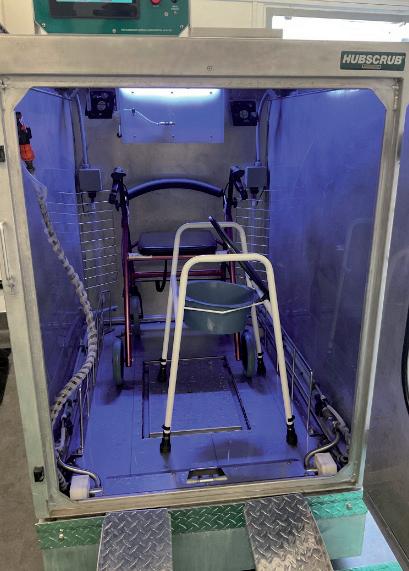

HUBSCRUB is trusted by hospitals, aged care and suppliers of assistive products. Used by retirement villages, care homes and hospitals for over 30 years, HUBSCRUB has a proud history of supplying guaranteed sterilisation to hundreds of organisations in New Zealand, Australia, Canada and USA.
With Purchase and Rental options, as well as a mobile service for large one-off cleans, such as
following an infection outbreak, there’s a service model to suit your organisation. And because HUBSCRUB is compact and portable, they can demonstrate at your place – all they need is access to power and water!
To find out what other aged care establishments are calling a “breakthrough in infection control”, why not have a trial?
We’re so confident you’ll see the benefits of HUBSCRUB, we’re offering a 2-hour trial absolutely FREE - at your place*
We’ll clean and sterilise commodes, wheelchairs, bedpans, walkers and more, totally free.
Call us for available dates and details of the trial on 027 283 0310
*Out of Auckland trials subject to availability of Hubscrub travelling unit, Offer ends 30 November, 2022.
The retirement village industry has grown more competitive over the years. New generation retirement villages have redefined what residents expect from their villages. As villages have become more sophisticated, some have struggled to keep up with increasing operational challenges.
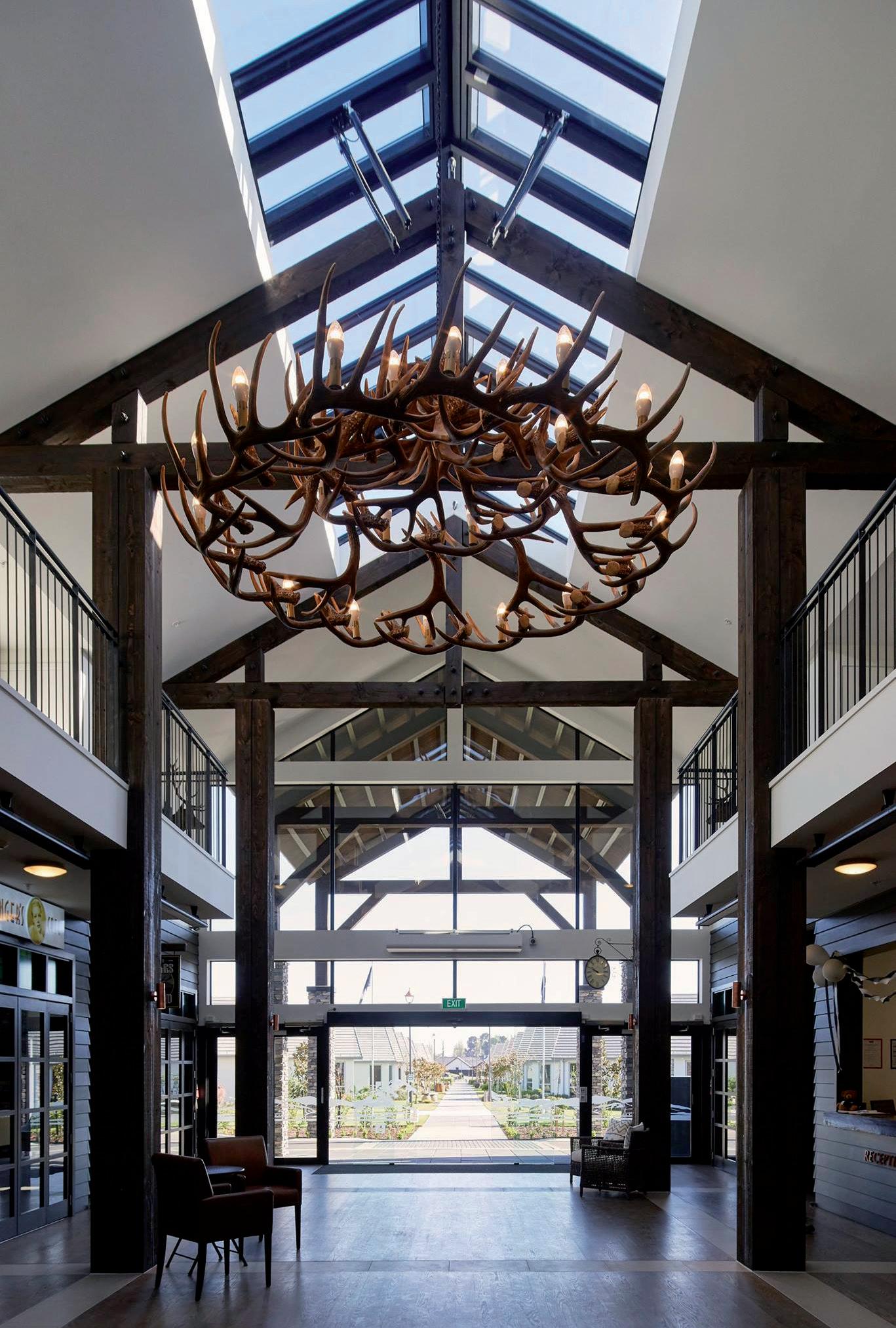
hat other businesses develop properties, deliver healthcare, manage bookings, and operate pools, cafés, and movie theatres all at once? Today village operators need the help of technology platforms to manage village operations to the high standards their residents expect.
At Spritely, the talented engineers and product specialists have partnered with decades of retirement village experience to develop a single platform that simplifies village operations.
Spritely’s award-winning platform delivers efficient operations and happy residents. As a result (perhaps most importantly), executives get more time to focus on building new houses, adding new developments and increasing shareholder value.
Case in point, Alpine View in Christchurch. Alpine View is an established lifestyle village owned by Qestral Corporation. It was the first village in Qestral’s growing portfolio with 200 independent homes and 50 apartments.
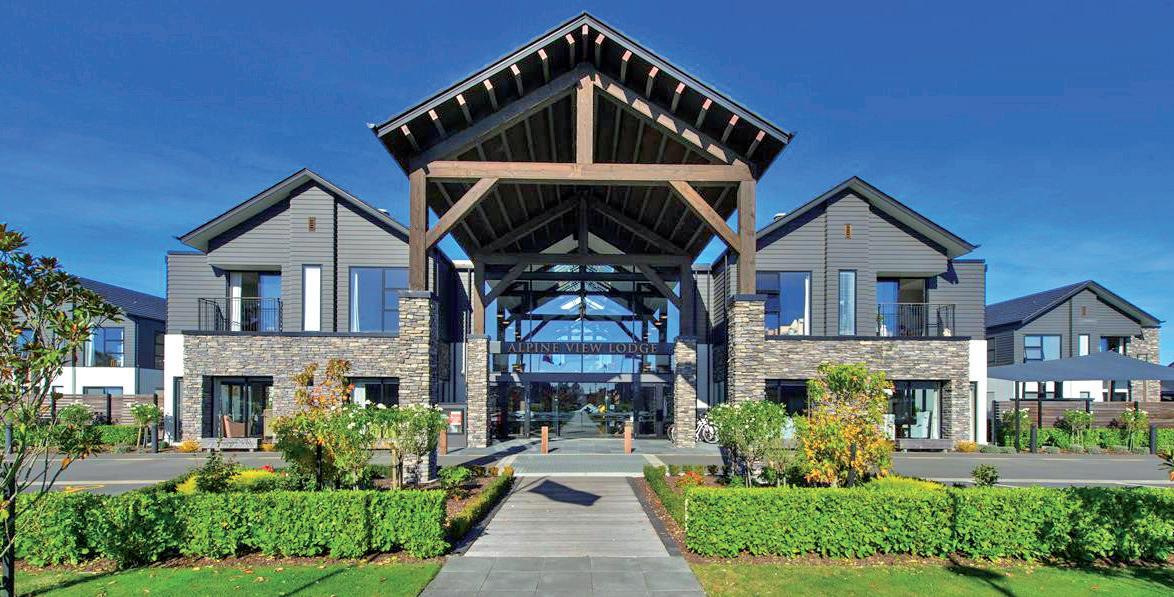
In late 2019 Qestral’s Managing Director Simon O’Dowd (NZACA Chairman) and Executive Chairman John Ryder (Ryman Healthcare Cofounder) rolled out Spritely at Alpine View to streamline their operations and improve the resident experience.
Since then, Spritely has saved Alpine View thousands of hours of administration, tens of thousands of dollars in printing and distribution costs, and allowed head office staff to focus on the company’s multi-village development pipeline.
This case study explores how Alpine View uses Spritely to manage daily village operations, improve resident experience, and allow the Qestral’s management team to focus on developing new villages at multiple sites in Christchurch, Nelson, Hamilton, and Whangarei.
Alpine View maintains a lot of information about its residents. There’s the required stuff, like name, date of birth, and next of kin. Still, all the little pieces of information make dayto-day operations run more smoothly, like pet information, car registrations, and dietary requirements.
Before Spritely, Alpine View used a spreadsheet network to track all of its residents’ details. These spreadsheets were located all over the network, were rarely up-to-date, and often missing key information.
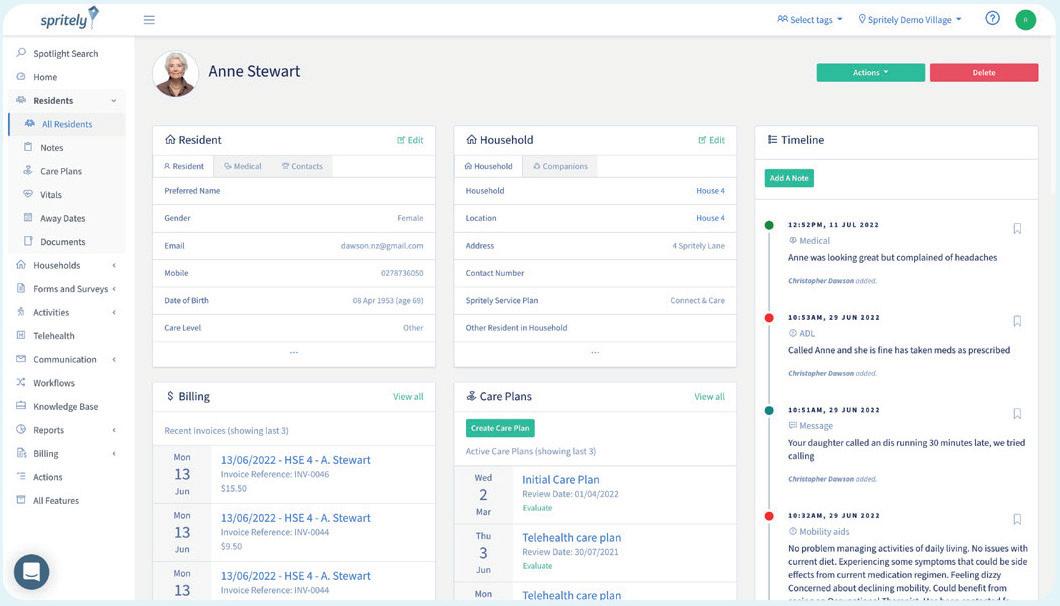
Using Spritely, Alpine View now has all of its residents’ information – from their GP’s details to their cats’ names – in one place. It’s simple to use and accessible from anywhere. Staff can easily
Continued on page 26.
Continued from page 25. update information when it changes and even leave notes on residents’ profiles to make sure the team is up to date with developments like new health diagnoses, complaints, and holidays.
Alpine View is famous for its jam-packed activities schedule – more than 300 a month. Before Spritely, booking activities was an incredibly labour-intensive process which involved distributing monthly multi-page schedules to all 250 households, having residents highlight the activities they wanted to attend, then collecting all the schedules back and recording the bookings in an electronic system by hand.
The booking process alone took three staff members three full days each month – time they could have spent expanding the activities offering. Now, activities are added to Spritely (apart from recurring activities, which Spritely
automatically generates monthly). At the beginning of the month, Alpine View staff make the activities public, and residents do all of their booking from their in-home tablets. These bookings are then automatically or manually approved, and individual schedules are generated (residents can see booked activities on their tablet).

A major benefit of self-booking is that cancellations and capacity can be handled in real-time. The booking process, which once took 72 staff hours, now takes only four. Research by an Applied Management student at the University of Canterbury found that Spritely’s activities module alone saves Alpine View 240 hours (1.33 FTE) per month, and over $30,000 per year in printing/distribution costs. This is a total saving of almost $100k per year.

Among the essential things a retirement village can do to improve the resident experience is
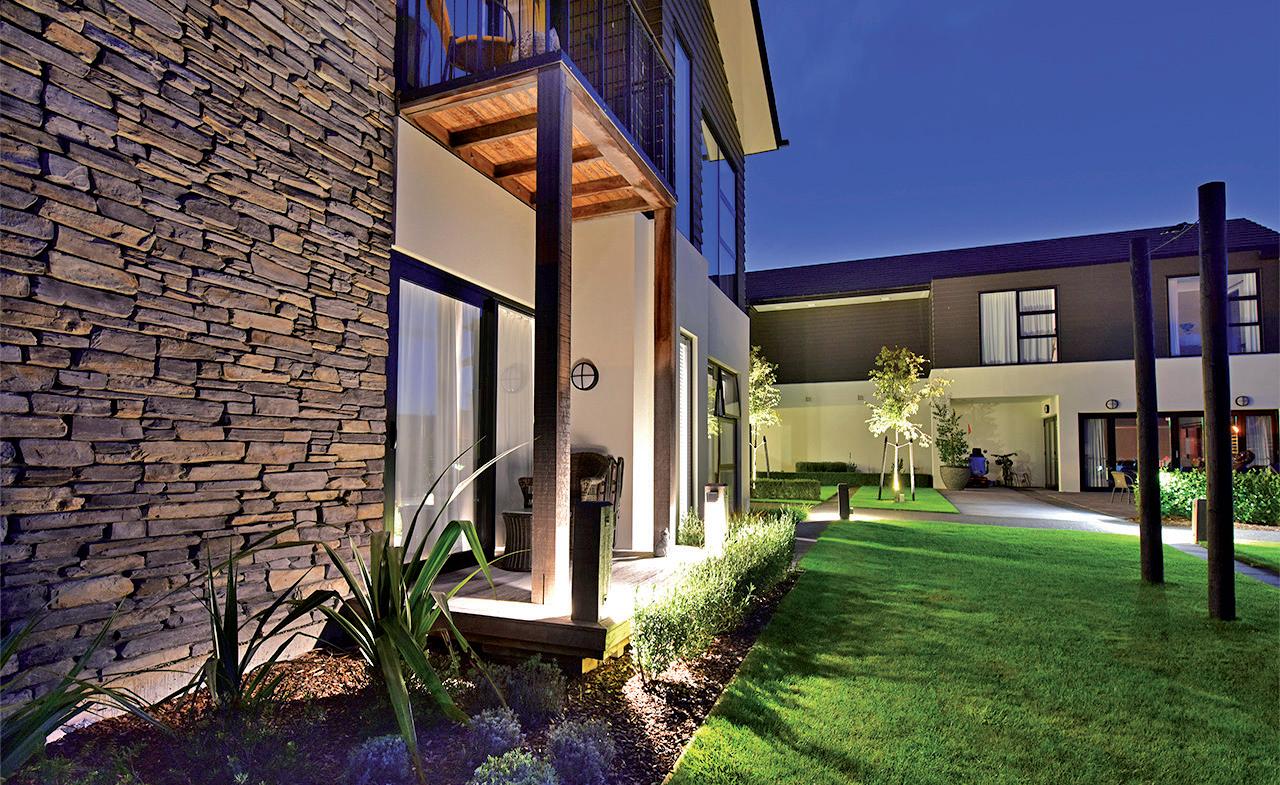
to make residents feel heard and to act on the valuable data they can provide. Alpine View conducted an annual resident satisfaction survey – paper-based and time-consuming – which assessed the quality of everything from the activities schedule to the food in the café.
With Spritely, the village can send custom surveys to any group of residents at any time. The residents receive the survey on their tablets, with answers instantly transmitted to the admin portal where staff can view open rates, responses and export the data for analysis in a spreadsheet.
Residents can also submit feedback anytime they like using the Spritely tablet.
This provides a readily accessible way for residents to log complaints, offer compliments or make suggestions. Spritely gives residents a voice so that management can quickly address concerns. With Spritely, villages can collect data more often, leading to happier residents and more informed staff. The cost of printing, distributing and collecting surveys is now a thing of the past.
Most of Alpine View’s services come free of charge, but some require extra payment. Whether it is a dinner at the restaurant, some additional housekeeping, or a day trip to the farmers’ market, the village needed a convenient and adaptable way to charge residents for extras.
The previous system involved recording
transactions manually on bits of paper and then collating those into a spreadsheet, which was then sent to the accounting team. Xero invoices were then generated, which clogged the system with hundreds of individual charges for meals and activities.
Spritely’s Billing and POS features consolidate all of that work into a central system that the village staff can use from anywhere to generate charges, make refunds and review accounts – all with a simple one-click export to Xero at the end of the month.

All of the village’s extras can be charged to residents from any internet-connected device on a Point of Sale system that takes just minutes to learn. The time savings for village staff and the accounting team are huge.
Clear and frequent communication is one of the best ways to improve the resident experience,
At the beginning of the month, Alpine View staff make the activities public, and residents do all of their booking from their in-home tablets. These bookings are then automatically or manually approved, and individual schedules are generated (residents can see booked activities on their tablet).
Continued from page 27.
but logistical challenges make it almost impossible.
Alpine View’s system involved a weekly newsletter which would be printed and distributed by hand to every household. With Spritely, village staff now send updates to a digital noticeboard, accessible on every resident’s Spritely tablet.
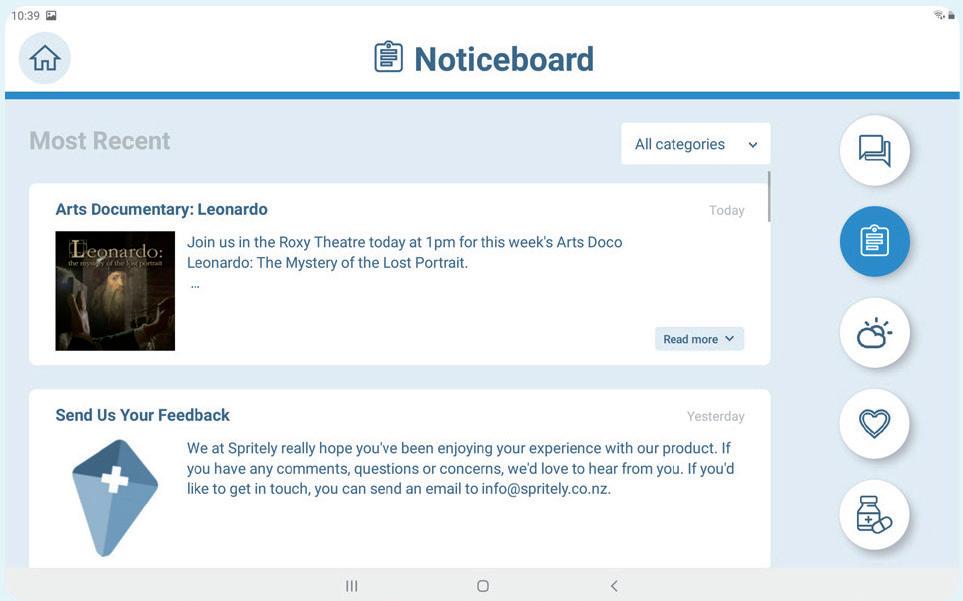
News about maintenance works, activity cancellations, event changes and much more can be sent in less than a minute to every resident in the village. The noticeboard also hosts videos and live streams including everything from home fitness programs to AGMs.
Data collection and standardisation is a huge challenge for retirement villages – especially ones who want to harness their data to improve their operations. That’s why Spritely includes a flexible forms system.
Alpine View staff have created custom forms for everything from health & safety events to contractor induction, asset maintenance and waitlist management – these forms can be filled out using any phone or computer, and the data can be analysed by management to identify trends, create transparency and solve problems.
Forms are especially useful to ensure villages remain compliant with regulations and pass their audits with the help of detailed documentation that is searchable and quickly accessible. The
tablet is eye-catching. Open home visitors pick it up straight away and have a hard time putting it down.
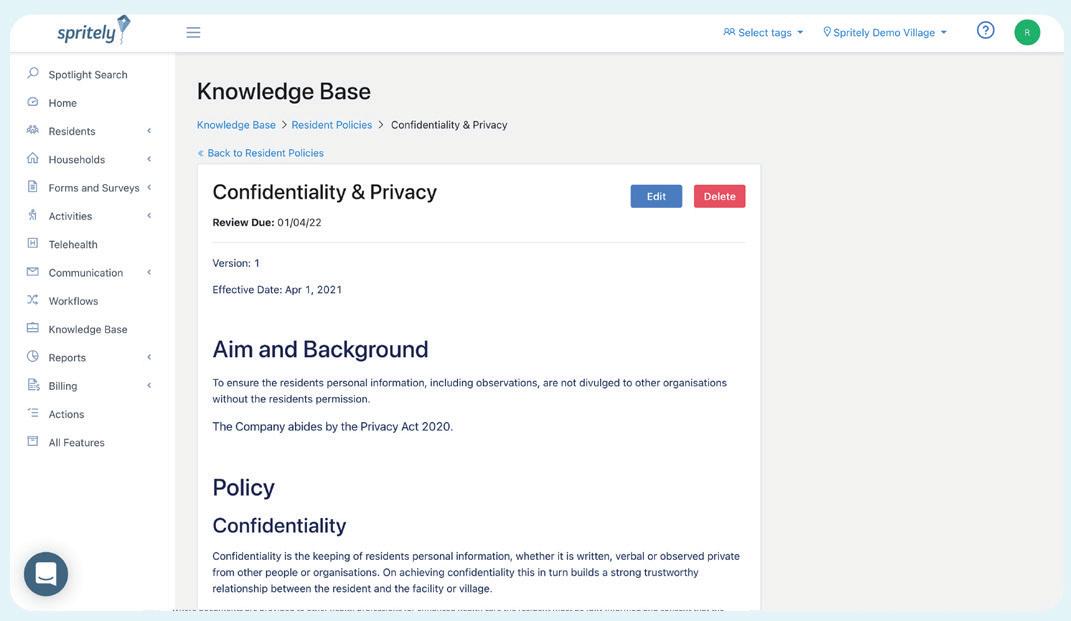
Policy and compliance burdens on retirement villages are heavy, and Alpine View is no exception. Before Spritely, their extensive library of policy documents lived in a cumbersome online system which was difficult to update, and which each staff member needed their own separate login for.
Now, they use Spritely’s Knowledge Base, which means that all of their policy documents are in the same place, inside a system they are already using. The policy documents have their own customisable permissions, flexible attachments, and built-in review dates. Staff no longer have to log into a separate system to consult their policies – they are right where they’re needed.
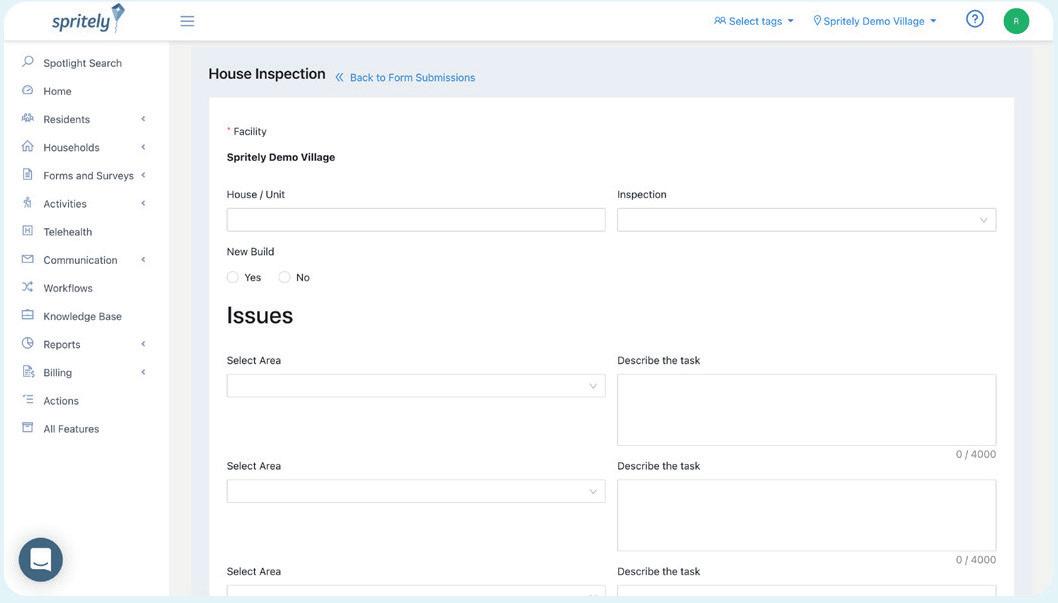
Alpine View residents using Spritely’s medication service receive their monthly medication in convenient pre-dosed sachets, making medication management easier while increasing adherence.
The sachet rolls are automatically delivered to residents’ doors by a Spritely partner pharmacist without any involvement from the village – it’s all taken care of. Alpine View residents signed up to
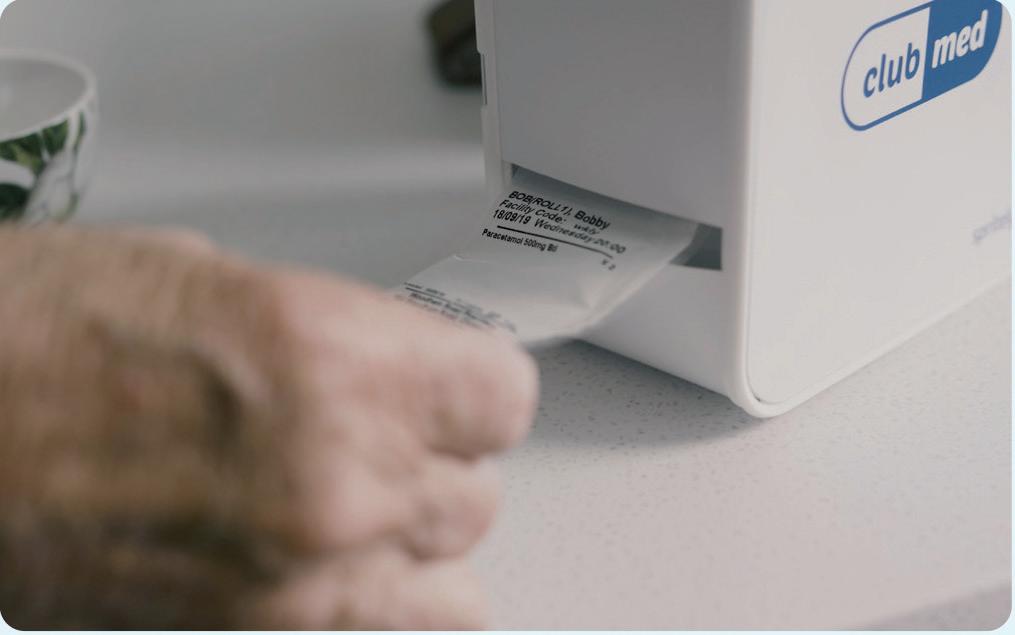
the service, say that it increases their satisfaction, makes their lives easier, and helps them stay healthy.
Retirement villages need to store thousands of documents to run effectively. ORA documents, health assessment, power of attorney forms, building refurbishment checklists and more all need to be stored at the fingertips of staff members.
Alpine View uses Spritely’s Documents module to store all their necessary paperwork in one place – tagged to the resident and easily searchable. The document database handles every kind of file the village needs, allowing staff to coordinate operations from anywhere.

Spritely has allowed Alpine View to streamline operations and improve resident experience

at every level of its business. From waitlists to refurbishments, Qestral saves thousands of dollars and staff hours, making the operation of their villages simple and scalable.
Alpine consider all their residents to be salespeople. Effective real-time communication between residents, from residents to management, enhances the customer experience, reduces loneliness and motivates residents to recommend the village. The management team at Qestral can now spend time focused on their development pipeline, safe in the knowledge that village operations are running as efficiently as possible.
Qestral is a fast-growing retirement village operator, and they benefit from having a comprehensive technology platform to manage important aspects of their village operations.
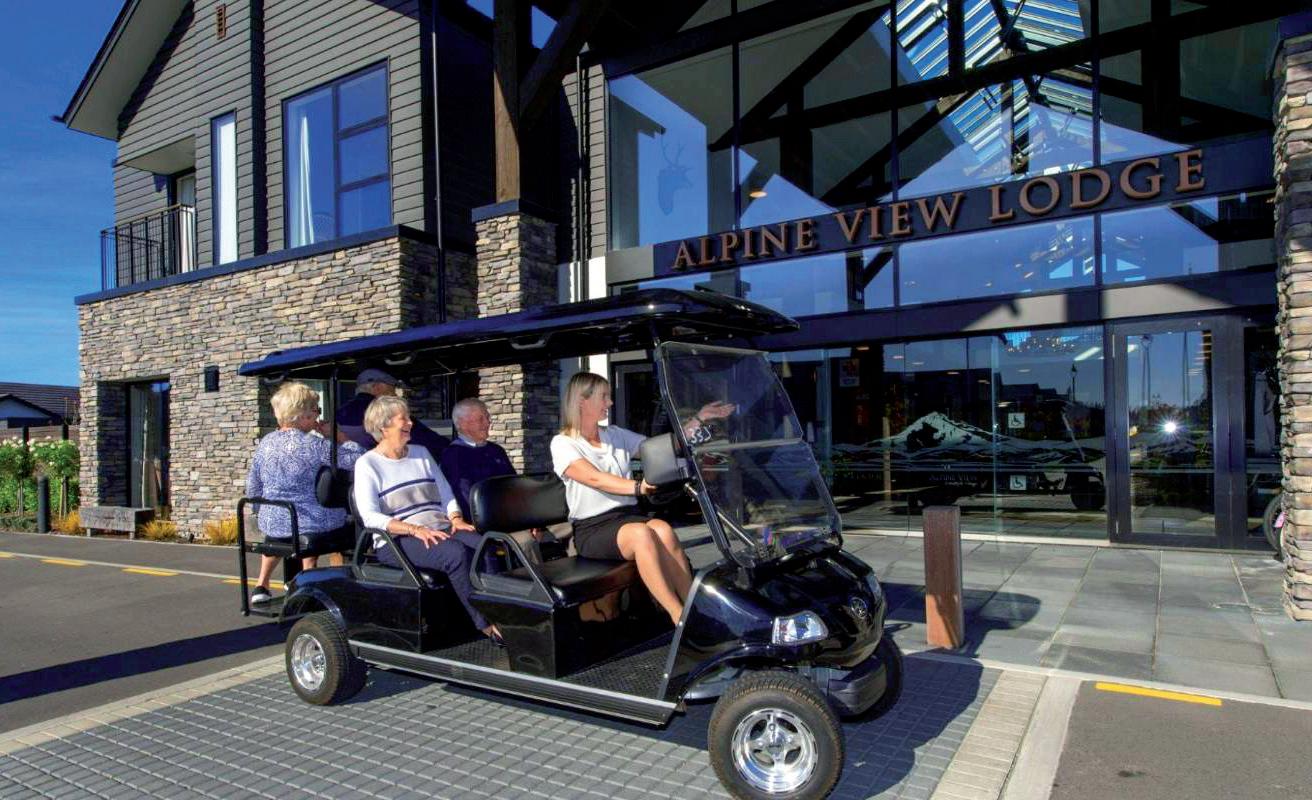
If you want to improve efficiency in your villages so you can focus on your development pipeline, email to learn more about how Spritely can help villages save time and money.
E: info@spritely.co.nz.


Pancakes are the perfect snacking solution for breakfast, lunch, afternoon tea, and dessert. In fact, there isn’t a time of day when pancakes don’t go well down.
Marcel’s know what makes a great product - simple recipes with high quality ingredients. The company prides itself on making consistent, delicious, light, and fluffy pancakes, crepes and blinis that are super convenient – pancakes made easy, simply heat, and prepare with tasty toppings!
Marcel’s flagship pancake. Light and fluffy, these can be popped in the toaster for a quick, satisfying pancake base for your menu creations.
• No artificial colours
• Made in New Zealand
• Halal certified
• Vegetarian
The perfect morning or afternoon tea snack, these are a mini version of the Happy Pancakes. They can be enjoyed straight out of the bag or warmed up for a quick and tasty snack or platter.
• No artificial colours
• Made in New Zealand
• Halal certified
• Vegetarian

Our Fibre Pikelets are a delicious treat with the health benefits of added fibre. Appealing to senior demographics, these pikelets are a perfect option for morning or afternoon tea.
• Aids Digestive Health






• No Added Sugar
• Halal certified
• Vegetarian


Marcel’s newest product ticks a lot of boxes - delicious, light, and fluffy, dairy and egg free, and of course, they’re vegan friendly. These bitesized pancakes are perfect enjoyed both as a sweet and savoury snack.
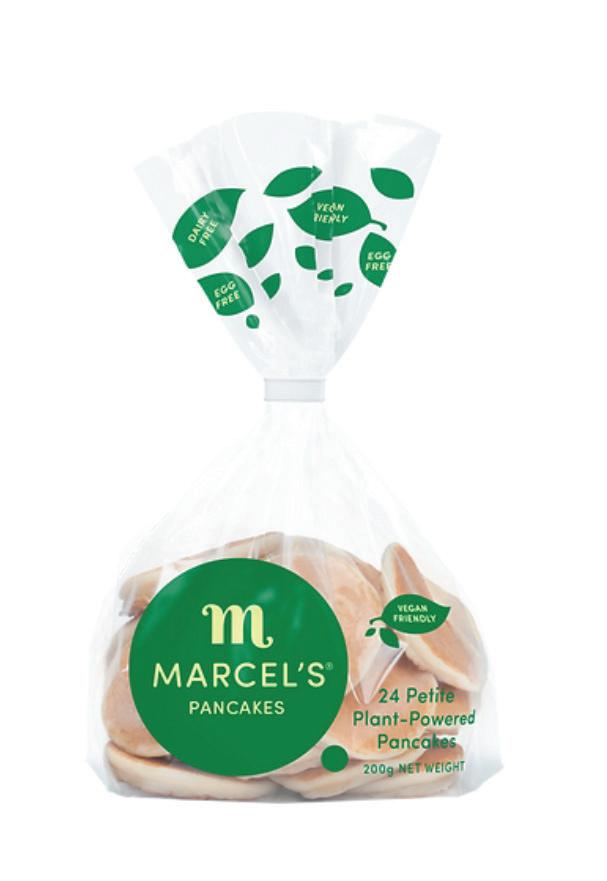

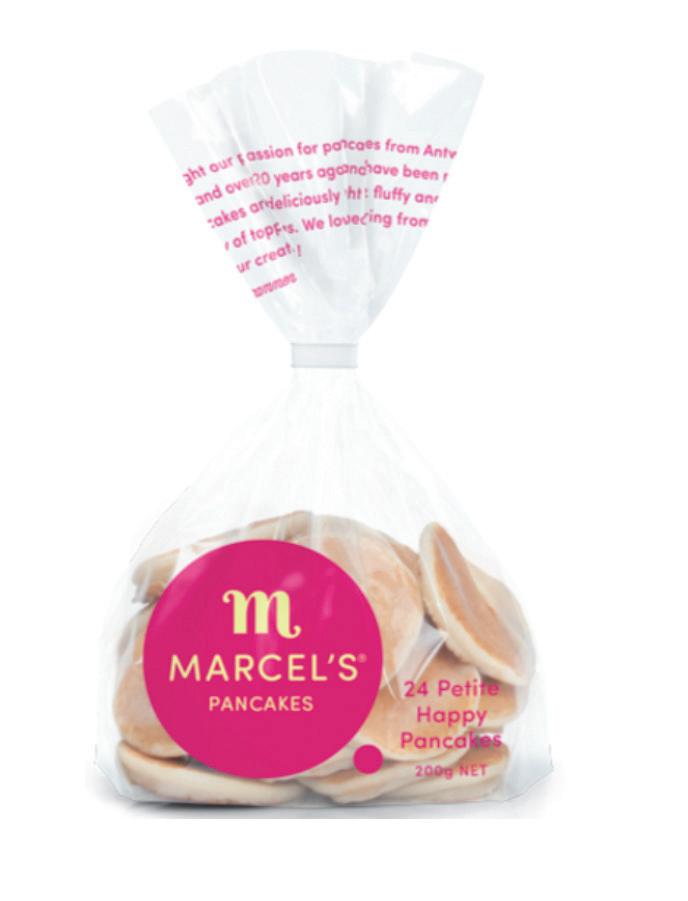
• No artificial flavours or colours
• Vegan friendly • Dairy free
• Egg free • Low in saturated fats
• Made in New Zealand

The middle meal of the day is a great opportunity to showcase
some culinary flair by mixing old favourites with new innovations.
Retirement village residents are no longer satisfied with mediocre meals, they expect a dining experience that equals eating out at their favourite establishments. Incorporating current flavour trends and exploring new tastes is a great way to do this. For chicken trends, Asian and Middle Eastern flavours are at the forefront.
Hellers versatile chicken is succulent, ready-to-eat chicken for no fuss kitchen solutions. It is the perfect starting place to build delicious and satisfying lunches. Hellers has some great recipe ideas available that highlight these trends, their Moroccan Eggplant Chicken Salad, for example, will allow your residents to travel through their taste buds.
4 small eggplants
4 tbsp olive oil mixed with 1 tsp turmeric powder
1 cup cooked wholemeal
cous
¼ cup currants
cup flat leaf parsley
roughly chopped
½ cup fresh mint leaves roughly chopped
5 tbsp harissa – Julie Le Clerc brand
1-2 packs Hellers sliced chicken

• 1 red onion sliced thinly into rounds
2 oranges cut into segments with the skin and pith removed
1 tomato on the vine
• Preheat oven to 200C and line a baking tray with baking paper.
• Cut each eggplant through the middle lengthways leaving the stalks intact. Put them on the baking tray along with the tomatoes; drizzle with olive oil; sprinkle with sea salt and cracked pepper.
• Bake for 10 mins then remove the tomatoes to cool.
• Using a pastry brush, spread the turmeric oil all over the cut inner surface of the eggplants. Then bake for a further 15 mins or until cooked and golden.
• To the cooked couscous, add the currants, herbs and 3 tbsp of harissa. Season and stir well.
• Toss the chicken in the remaining 2 tbsp of harissa and then add to the couscous.
• To assemble, put each eggplant onto a large plate. Stuff with a quarter of the cous cous. Then top with red onion slices, orange segments, a dollop of extra harissa, 2 tomatoes. Serve at the table.

Careful thought and creativity are important to retirement and aged care menu planning. It is well known that food consumption and nutrition is closely linked to our overall quality of life.
But for busy staff, ease of application is also important to menu planning.
Barker’s Professional looks for opportunities where it can make a difference in kitchens throughout New Zealand. The brand’s ‘readyto-go’ meal sauces save time and energy, allowing staff to
concentrate on the needs of their residents.
Simply mix meal sauces through cooked chicken, fish, beef, tofu, vegetables etc., heat and serve. They can be used to create comforting classics like beef stroganoff, or to inspire more exotic taste sensations

like teriyaki steak.

The versatility of these meal sauces means that the Devilled Sausage Meal Sauce, for example, doesn’t just make delicious Devilled Sausages, to mix it up why not try Devilled Meatballs or even Devilled Short Ribs?


Barker’s Professional

understands the pressure to produce good food consistently, conveniently and with great flavour. Synonymous with innovation, quality, and reliability, Barker’s focuses on delivering easy and delicious food solutions your residents will love.

As a one stop shop, we make buying everything you need easy, and we’re focused on helping your bottom line.
gilmours.co.nz











Thinly




Cooking is in 24-year-old Shahil Lala’s DNA. The chef recently found out that his maternal great grandfather was a chef and paternal grandad was a wedding caterer.
hen I was a kid, mum and I were always experimenting with new flavours. I started off just licking the spoon and it grew from there.” After thriving in Food Tech at high school, snapping up a cookery apprenticeship seemed like a natural progression.
The newly qualified chef is now whipping up a storm as senior chef de partie at retirement village The Poynton Auckland’s Zest Café, one of the retirement village’s three bars and eateries.
Zest is an a la carte restaurant with a regularly changing menu, and the newly qualified chef has learnt a lot with lots of opportunities for creativity.
Nutritionally balanced, dietician-approved meals are de rigueur in Lala’s kitchen - but that
certainly doesn’t mean bland and boring.
“Being a younger chef, I’m always looking at trends on social media and bringing those ideas into the village.
I think residents enjoy experiencing my modern take on things, such as putting a fresh twist on an old traditional favourite like lamb shanks,” Lala said.
The chef’s desserts are also a hot favourite. For his final assessment, Lala created an orange and cardamom crème brulee that got such positive feedback it is now on the menu.
While some young chefs might choose to cut their teeth in the latest trendy restaurant, for Lala completing his apprenticeship at Metlifecare was a rich and rewarding experience.


“Cooking is my happy place, and getting paid to learn has been amazing.” The restaurant is a huge part of village life, as a meeting place for friends and family and a space for residents to socialise.
Lala enjoys knowing that by cooking delicious food, he is enhancing people’s lives.
Food is at the heart of living as we age and Royal Porcelain offer beautiful choices of dinnerware for your residents.
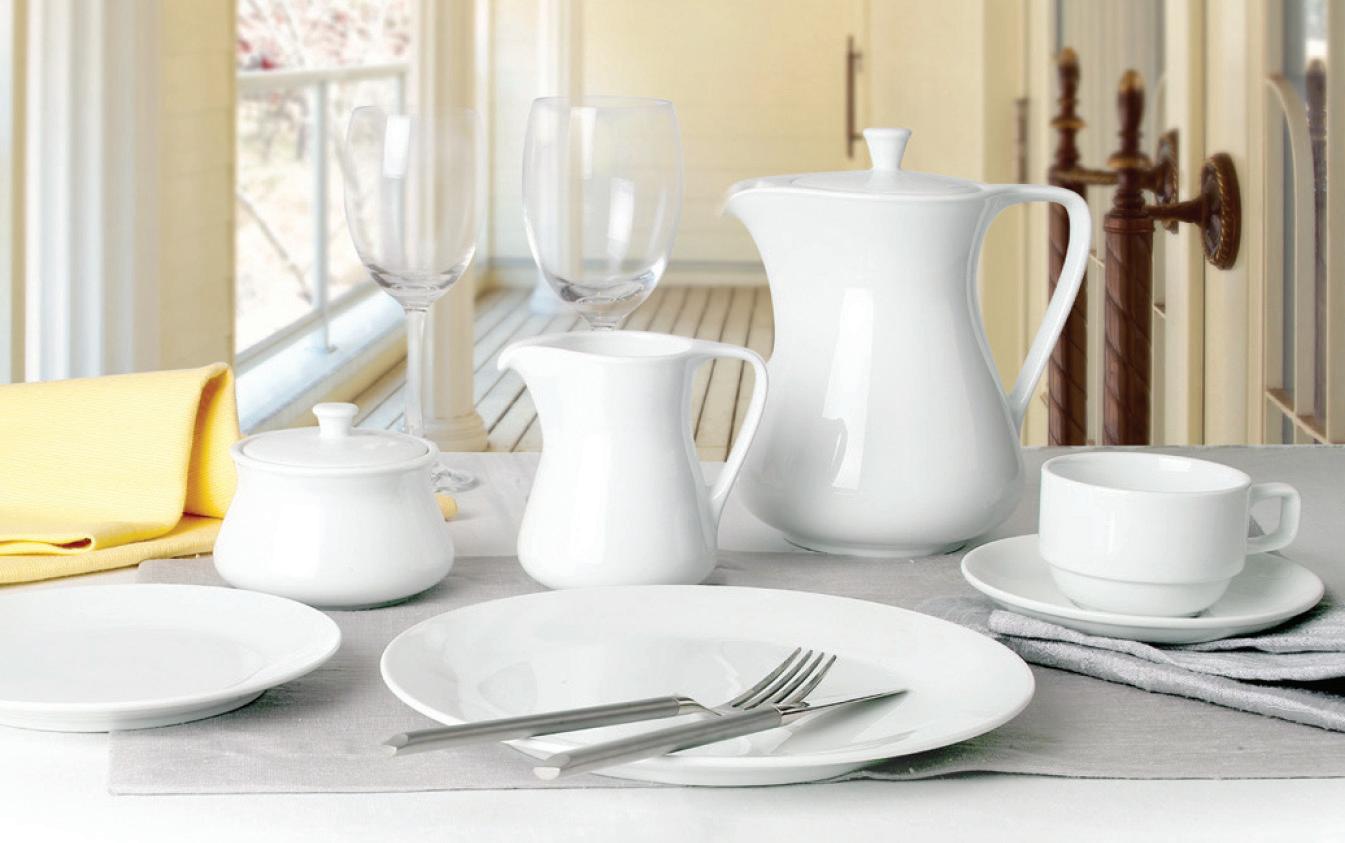
Royal Porcelain has been the innerware of choice in agecare for many years with its outstanding quality. Each piece is fired at a high temperature and with double glazing presents with a smooth white finish and a brilliant shine.
The range is highly resistant to scratches & chipping making it highly suited to a busy environment. Royal Porcelain is stocked in New Zealand for easy procurement, replacement and range extension.
Newly released is the “Resonate Red” range designed for visual/physical impairment and Alzheimer’s - a welcome innovation in the age care space.

It’s 9pm on a Tuesday evening, and Shaun Wallace, the Dark Destroyer from The Chase, and arguably New Zealand’s favourite Chaser, is on the phone from London.
that Shaun loves New Zealand and New Zealand in return loves Shaun: “From the moment that Shaun arrived here, he gave 100% to anyone he met, and very quickly I realised that at his age, he would fade very quickly unless I tried to protect him. But he was relentless, nobody missed out; every photo was taken, every book was signed, he really did ensure that all of his fans enjoyed their meeting with him. Shaun even rang a couple of people for their birthdays – they got one heck of a fright! He truly is a really nice guy - he still calls to check in every week, and always wants to speak to my kids – H and Soph he calls them!”
Whilst in New Zealand Shaun visited several retirement villages, where there was standing room only, as he quizzed against selected residents, answered curly questions about The Chase, and signed copies of his autobiography Chasing the Dream. He also ran several charity events, and hosted the 2019 New Zealand Pub Quiz Championships in Auckland, where almost 700 people attended.
e’s keen to re-establish the links he created when last in New Zealand in 2019, when he visited twice, running a combined 15 “An Audience with Shaun Wallace” events over the 19 days he was in the country in both February and November.

“It was exhausting for me, I literally had an event every night, but I was determined to get across the whole country if I could, and Brendan, who represents me in New Zealand, put together an awesome itinerary for me. I think we visited around ten cities, but I have unfinished business, there are parts of New Zealand I didn’t get to see, that I would like to visit next time.”
‘Brendan’ is Brendan Lochead, the founder and sales manager of Believe it or Not, New Zealand’s premier quiz provider. He is very clear
Shaun’s memories are very clear when asked about the best parts of his visit: “Listen, there were so many amazing things I did. I went white water rafting and bungee jumping in Queenstown, got taken on a three wheeler motorbike on a tour of Dunedin, visited Eden Park in Auckland and held the Rugby World Cup, commentated at the cricket test between England and New Zealand in Tauranga, saw Weta Workshop in Wellington and visited a wildlife sanctuary in Palmerston North. I also was a lolly runner on an Air New Zealand flight, I have the certificate they gave me on the wall behind me right now! I also got to meet two of my heroes, Sir Richard Hadlee and Dame Susan Devoy. Sir Richard brought along the mounted ball he took his nine wickets in an innings with, and Sue, she told me off for calling her Dame Susan by the way, took me out for lunch!”
When asked about how The Chase has changed his life, Shaun is very clear that his first love is law. “My proudest achievement is actually when I was admitted to the Bar. My teachers said I would amount to nothing, that drove me, and that is why that is why I rate that the highest. Being the first black man to enter, let alone win Mastermind, would be next on the list, but yes, being a Chaser is great fun too, and it has opened so many doors.”
Brendan has many fond memories about the time he spent with Shaun in 2019. “My favourite pic is one of him on the couch in my house on the day we first met. It’s 5.30pm, and he’s on my couch watching himself on the telly!” And of the man himself? ”He is very disciplined in all areas of his life. He exercises ruthlessly every morning. He studies trivia every day for an hour or two – he says it’s like anything in life, to be good at something, you have to practise, and that includes increasing his general knowledge. The other thing that struck me was that he has no airs and graces, he drives a 12 year old car, and lives in the same street he grew up in. He also doesn’t buy into celebrity culture – he has no famous friends, all of his mates are from his childhood – he knows he can trust them.”

And what of his impending return to New Zealand next March? Brendan says this time around it will be different. “Last time around I said yes to everything as that was what Shaun wanted. But he was shattered by the end of the trip. I think this time, we will do several larger events, and space them out better. Shaun knows his audience though, he identifies best with people in his own age bracket, so he will definitely be looking to catch up with his fans at retirement villages again. We have recently
released an aged care quiz product which we run in around 50 villages already, so he will be keen to get to some of those potentially.”
Shaun dangles a carrot in front of me as we say our farewells: “You know, I am trying to convince Bradley to come with me. He’s always wanted to visit New Zealand, and we get on well, in fact our birthdays are literally two days apart! I think he will come with me if the stars align.”
Imagine that – New Zealand’s favourite Chaser and favourite quiz host – in the same room - what a hot ticket that would be!
From the moment that Shaun arrived here, he gave 100% to anyone he met, and very quickly I realised that at his age, he would fade very quickly unless I tried to protect him. But he was relentless, nobody missed out . . .
Wools of New Zealand is building on its success in flooring Kiwi homes in woollen carpets with the development of a new wool tile range for the commercial sector.
Hillview is owned and run by a community trust. Local farmer and trust chair Claire Grainger said that as part of a rural community, the trust was keen to support farmers and use wool carpets in an upgrade.
“A lot of our trust members and people living at Hillview have connections to rural communities. We wanted to support farmers and the properties of wool carpets make them ideal for use in a rest home - it’s a great product.
JOHN McWIRTHER Chief Executive Wools of New Zealand
he wool tile product is the culmination of an 18-month development programme designed to unlock opportunities in the commercial sector and drive greater value and returns for wool growers. The company is initially targeting the commercial sectors in New Zealand, Australian and UK.
“We are seeing companies and other organisations wanting to ensure their premises are more sustainable and looking after the wellbeing of their people,” said John McWhirter, chief executive of Wools of New Zealand.
“The many beneficial natural properties of our wool tiles make them ideal for using in commercial spaces.
“Wool is a natural
product, it’s biodynamic and helps keep buildings warm in cold spells and cool during hot weather. Wool is biodegradable, naturally flame and stain resistant, it’s allergy-free and naturally grown - rather than the fossil fuel-based fibres used in synthetics.
“Our tiles will be of interest to a wide range of organisations and commercial businesses, including the education sector, offices and retail.”
The price of the wool tiles was competitive in relation to the high end synthetic carpet tile market, he said.
The first organisation to use the tiles is the Hillview hospital and retirement home in Te Kuiti, which has had them fitted in its care home and plans to also use them in new independent living and respite facilities.
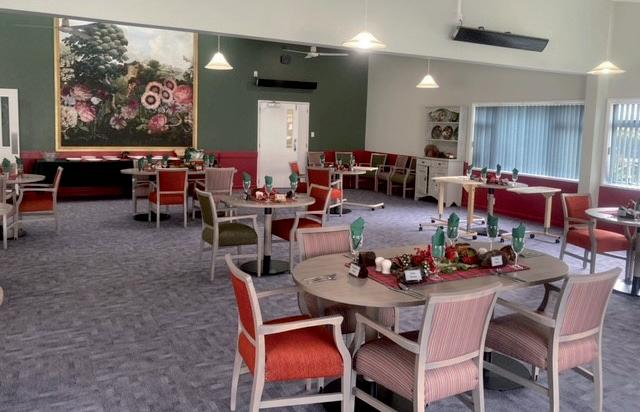
“A problem in the past was that wool carpets were much more expensive than synthetics but now they have become an affordable option.”
WNZ has an agreement with leading retailer Flooring Xtra, as well as other independent retail stores, to market its wool carpets, which are now available at more than 150 outlets across New Zealand.
It is the first grower-owned New Zealand carpet brand to have grown its own wool fibre and supply a finished product to the New Zealand market.
“Our goal is to make wool carpet affordable to Kiwi organisations, businesses and households,” said McWhirter.
“We are doing this through using modern high volume manufacturing operations and taking costs out of the supply chain while maintaining very high quality.”




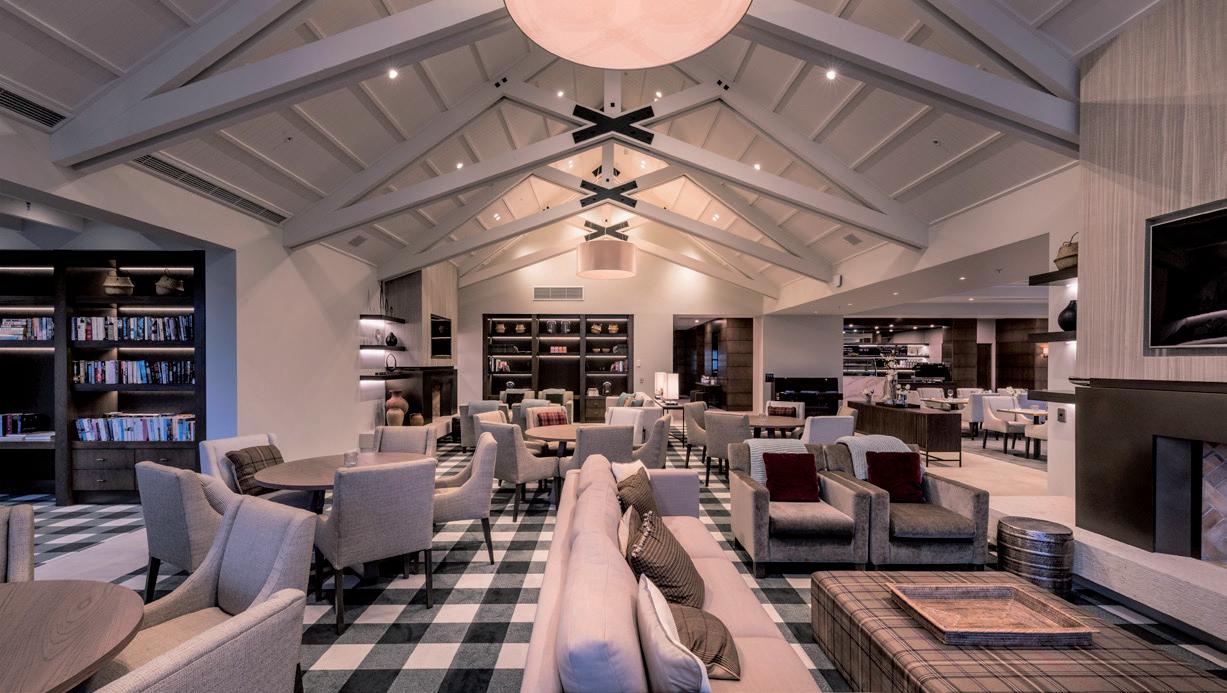
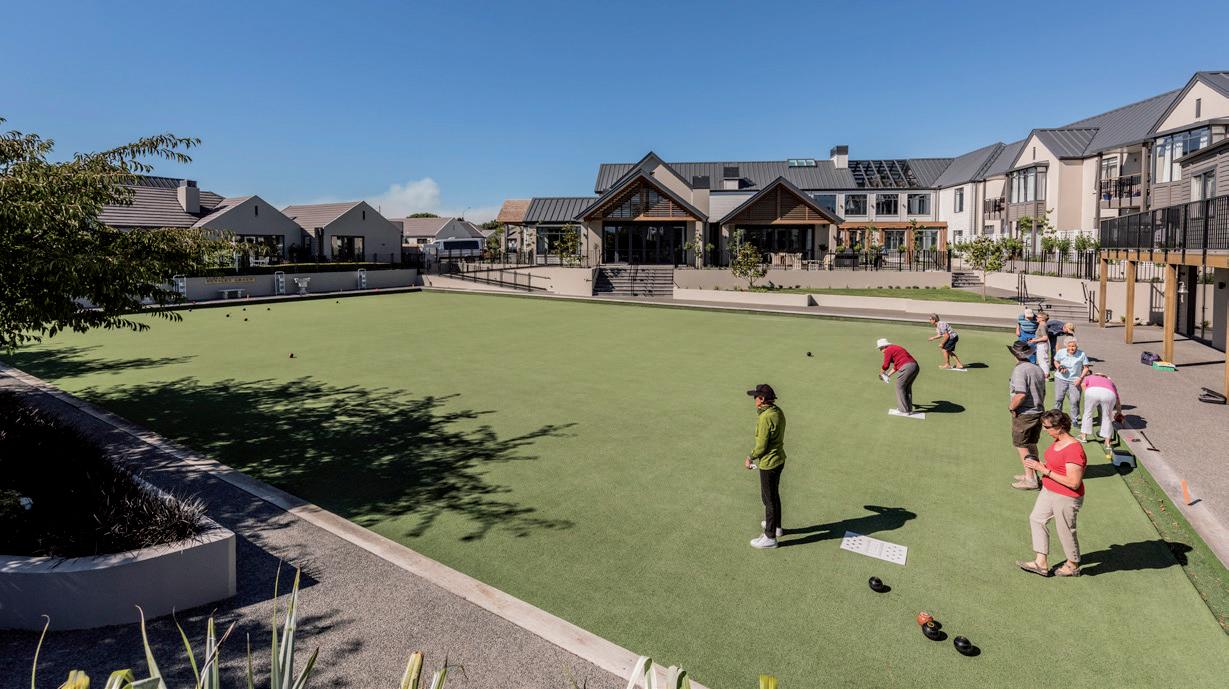
The 2022 ATSNZ Disability Expo showcased products and services designed for the rehabilitation, aged care, home care markets and leisure and recreation markets.
The exhibition of assistive technology aimed to continue to enhance and expand the choices for people with disabilities and seniors across the country.
The event showcased a broad range of assistive technology (AT) and lifestyle services to support choice and control for those with disability, seniors, and caregivers, with visitors experiencing the latest advances in AT and related services.
Assistive Technologies Suppliers New Zealand (ATSNZ) aims to help people improve their independence, dignity, mental health, physical health, and well-being through awareness of assistive technology product and service solutions.


